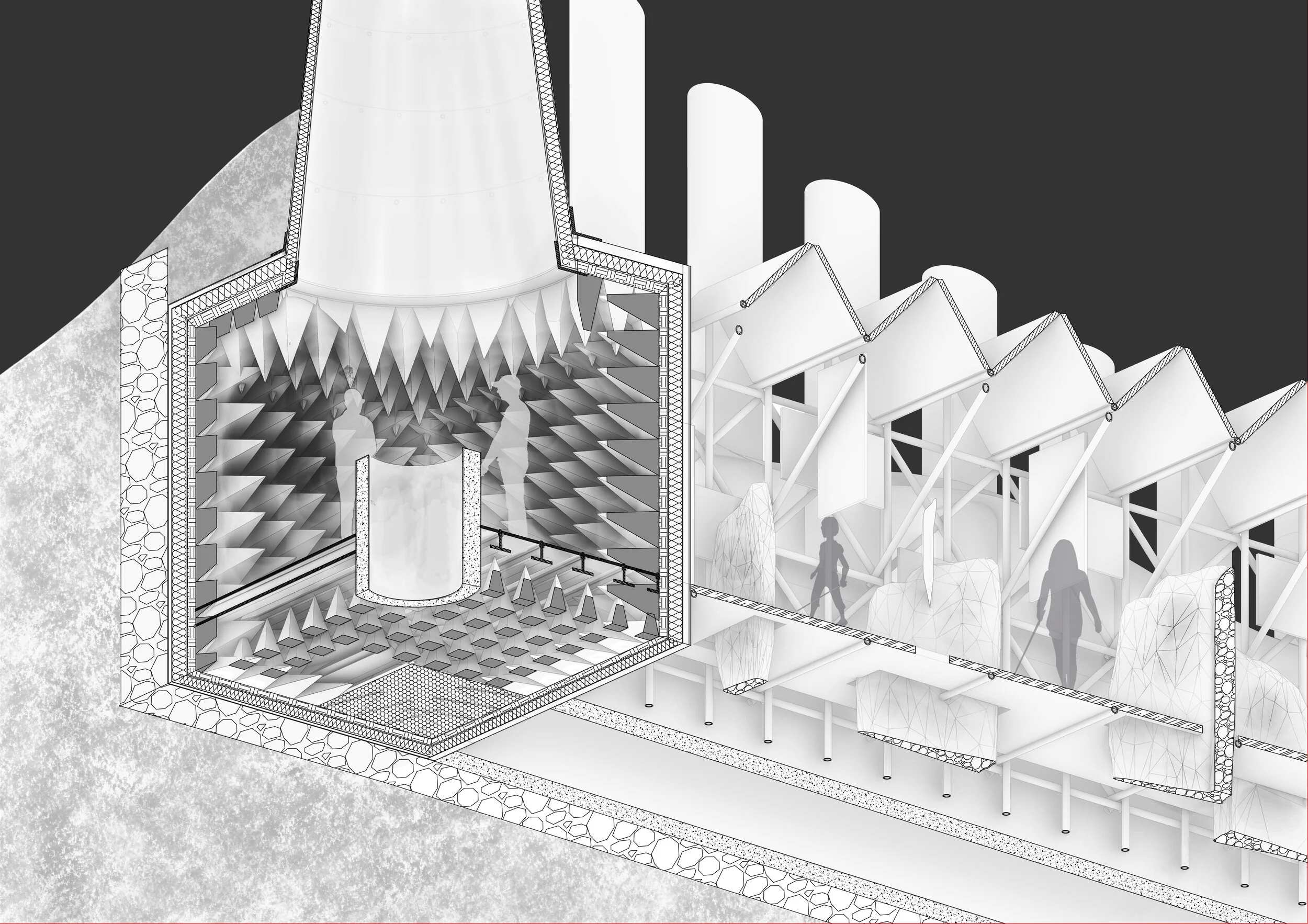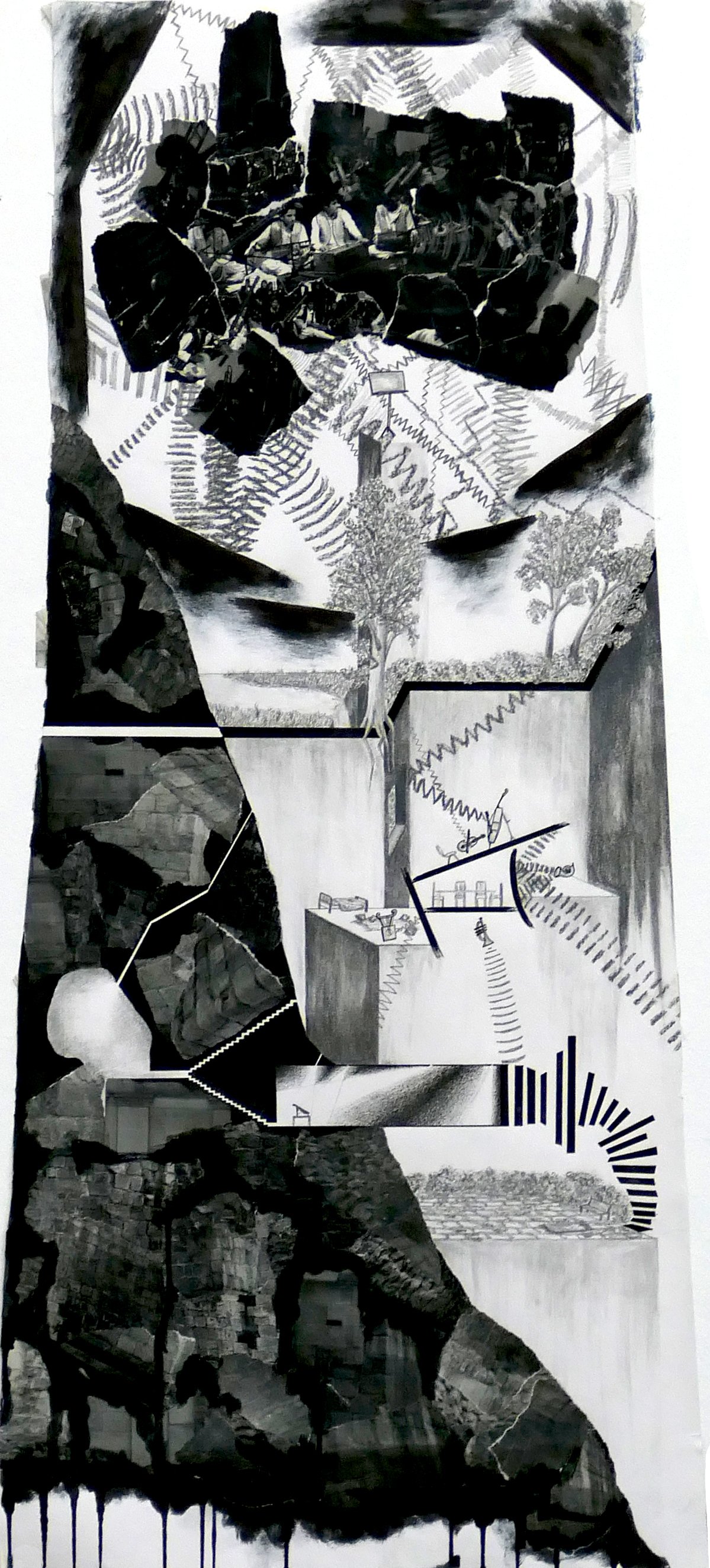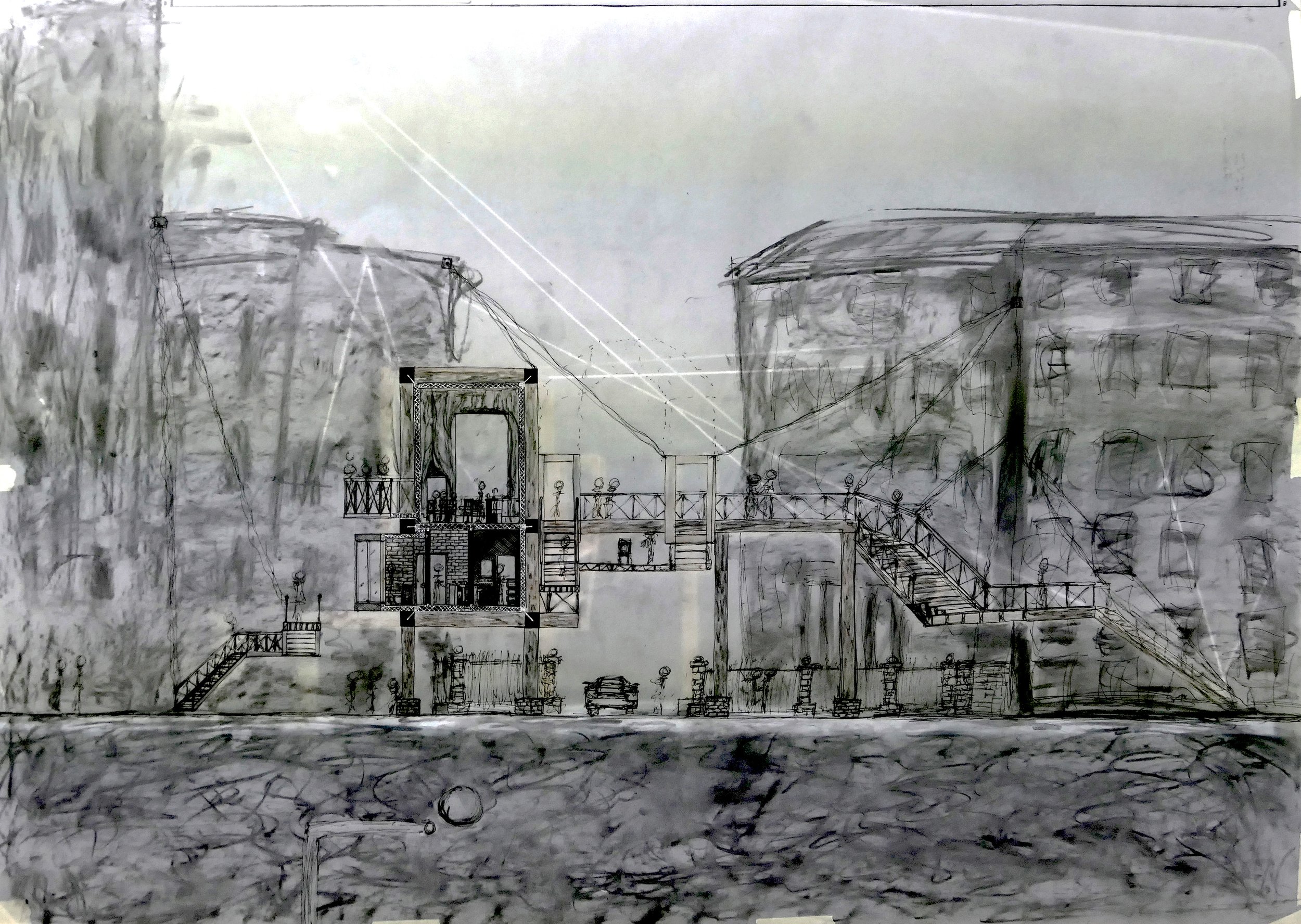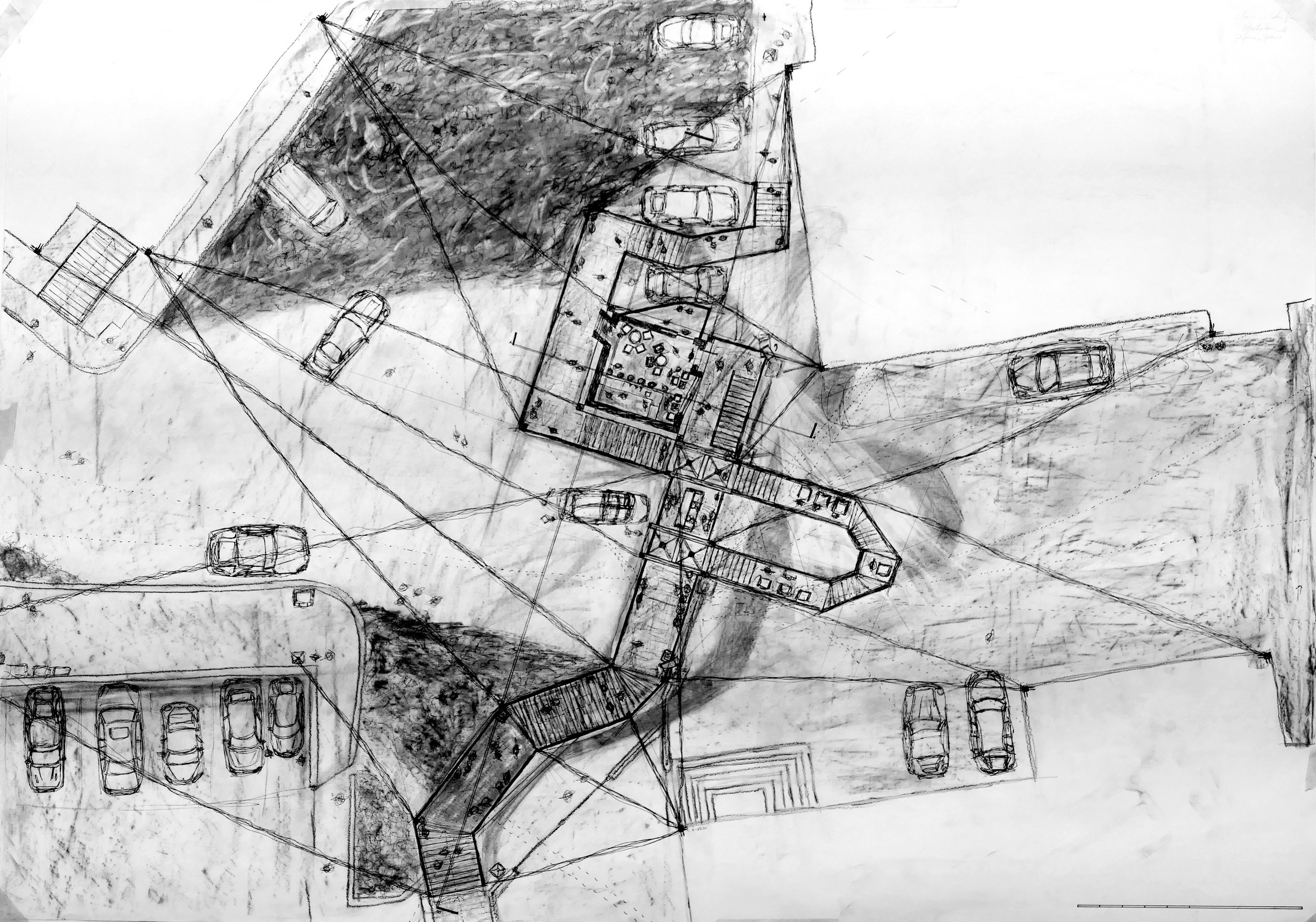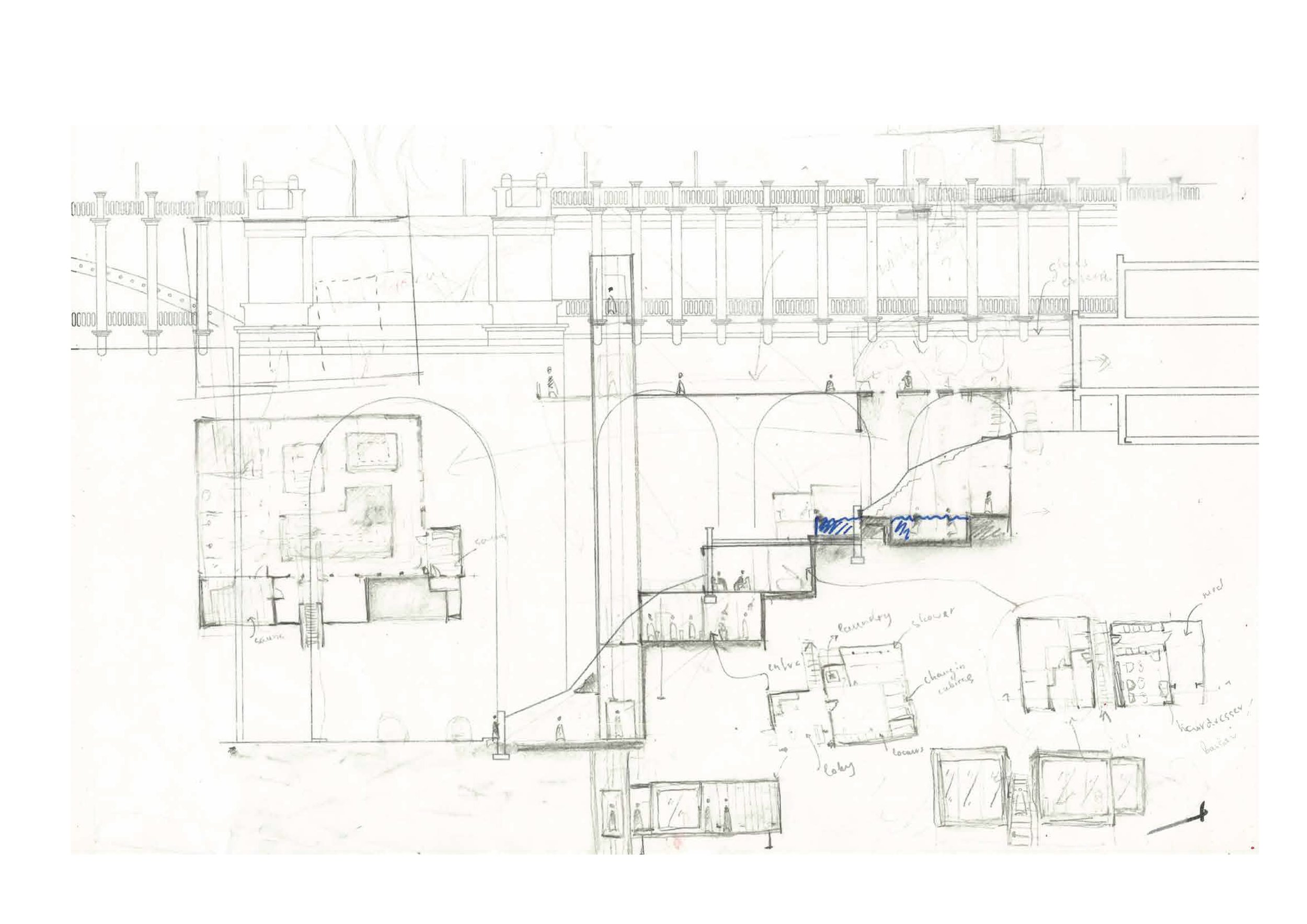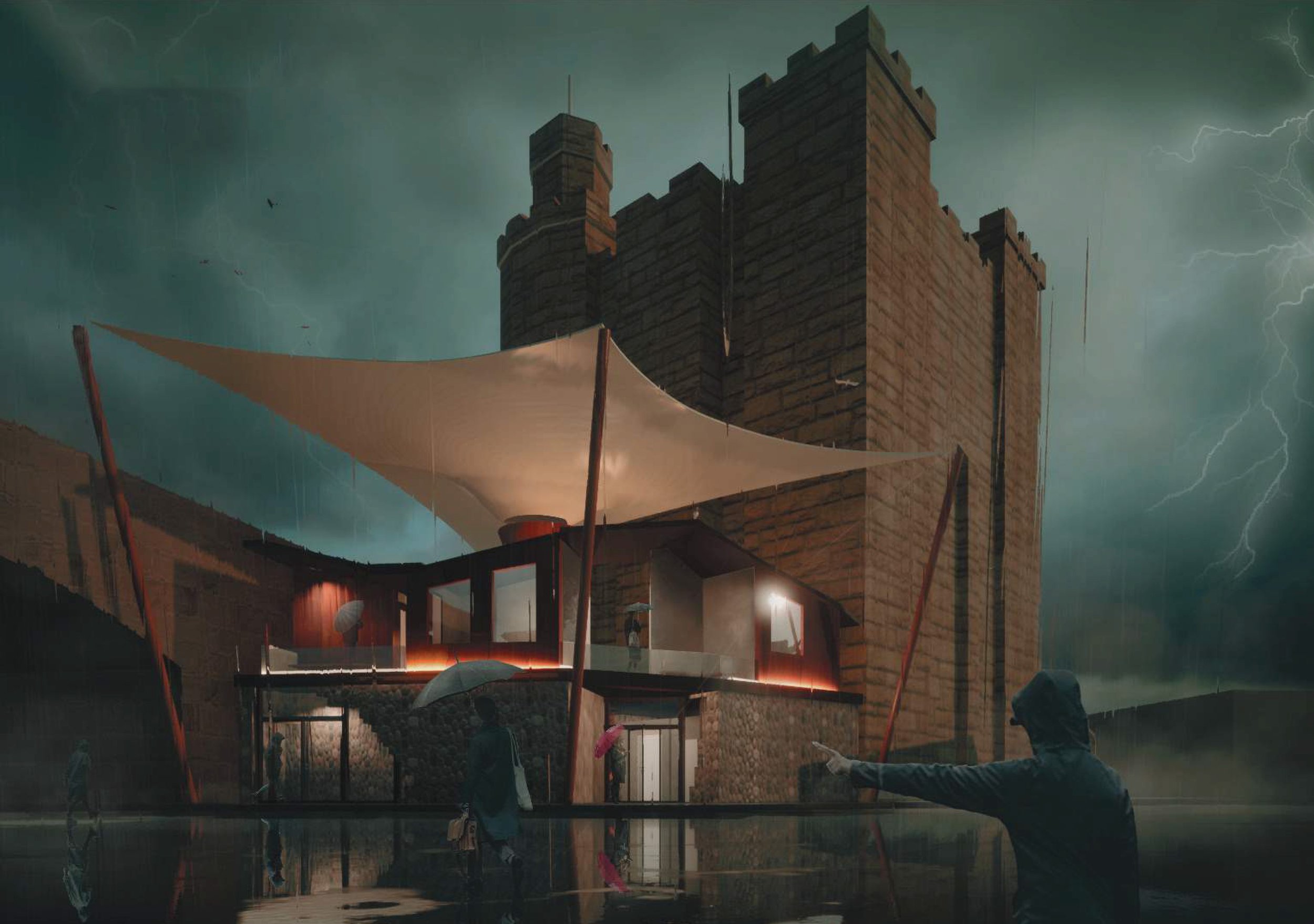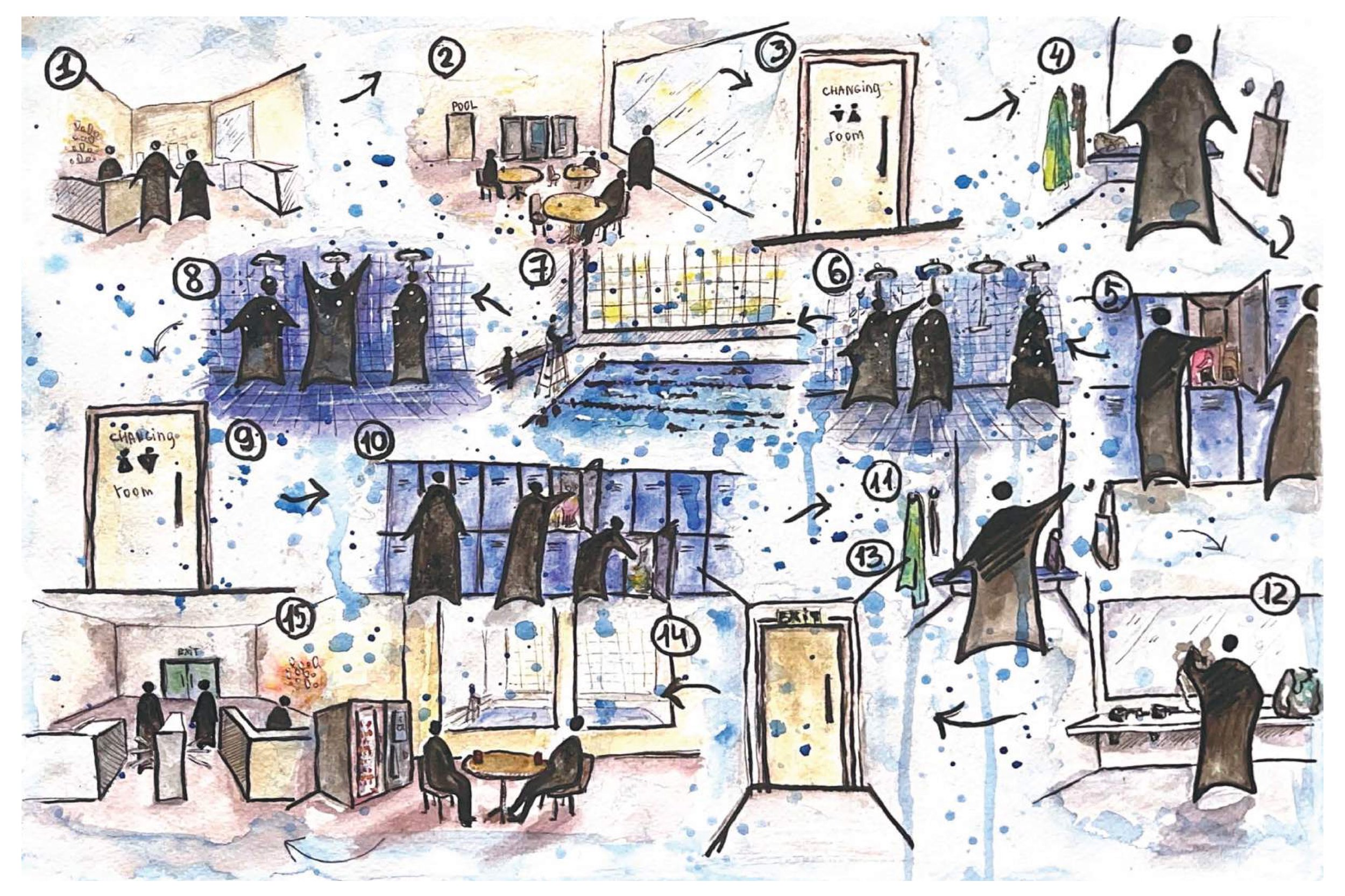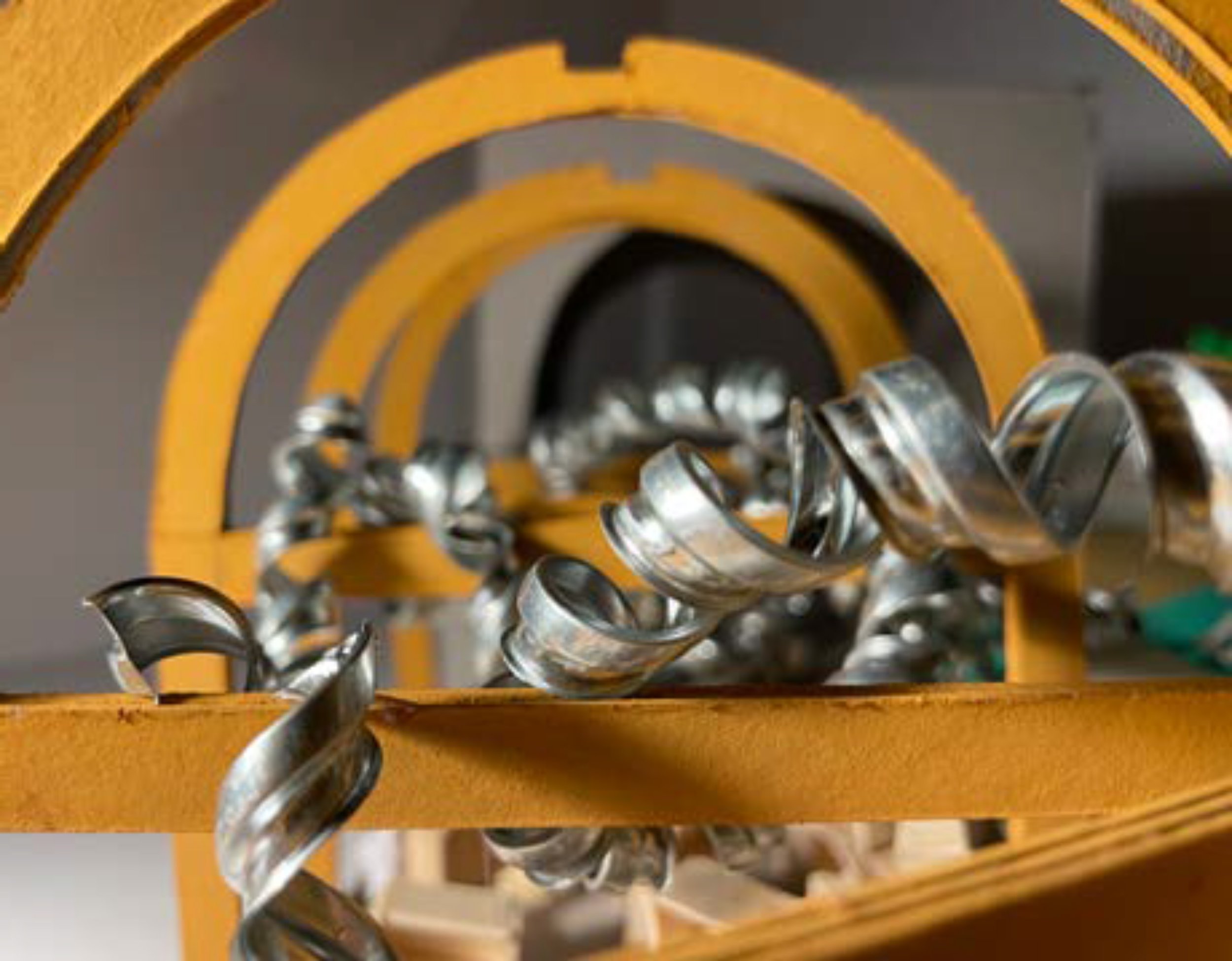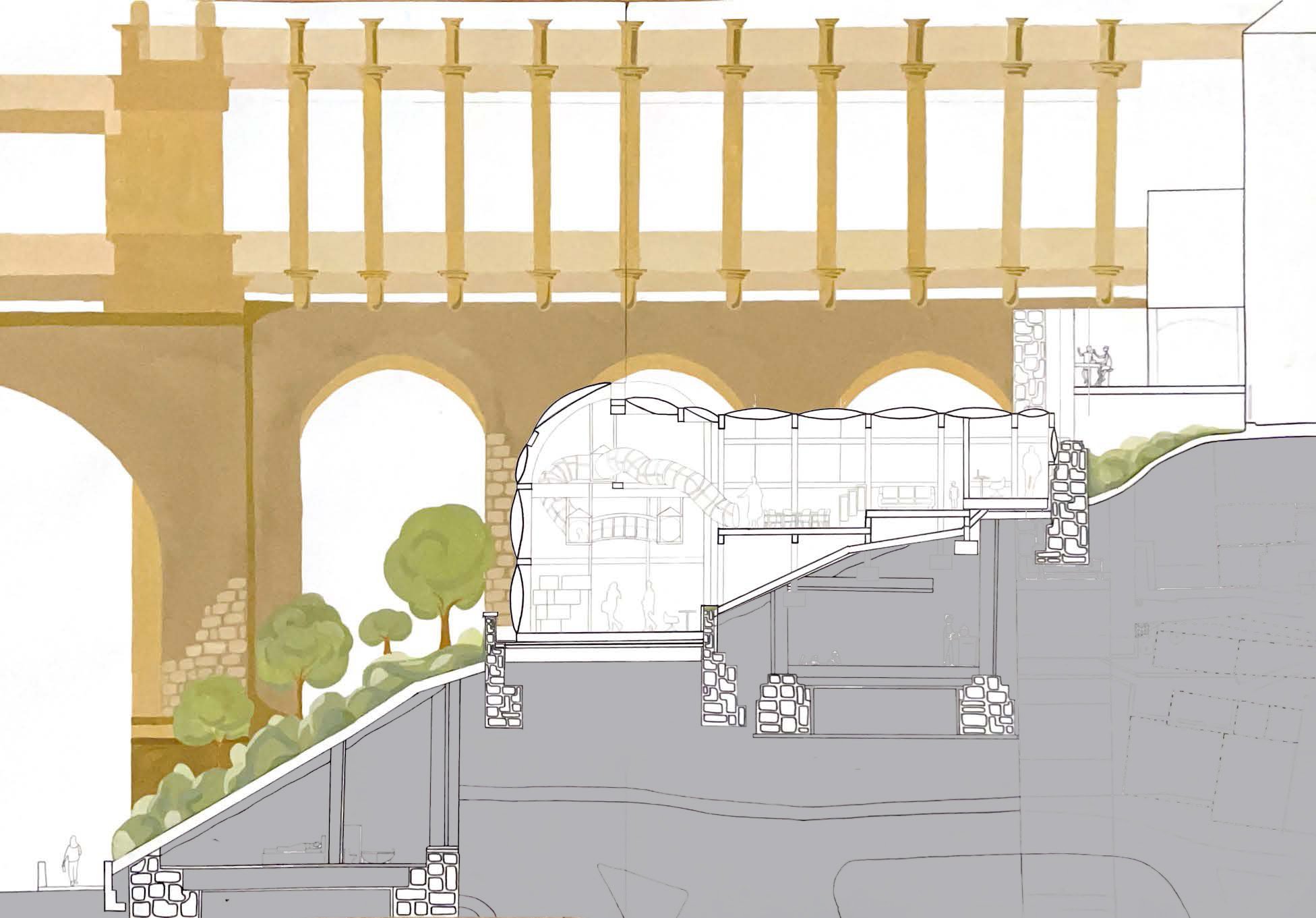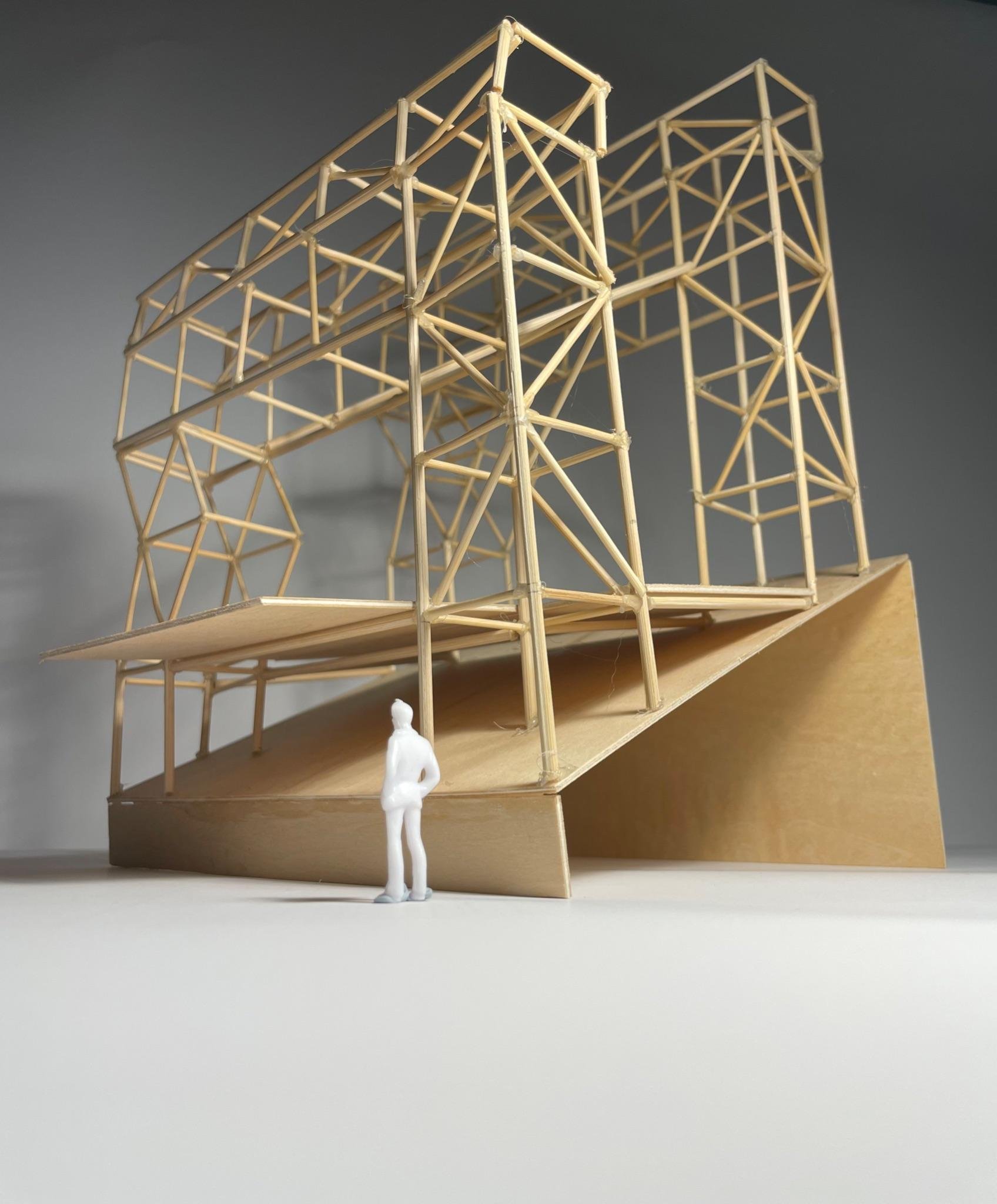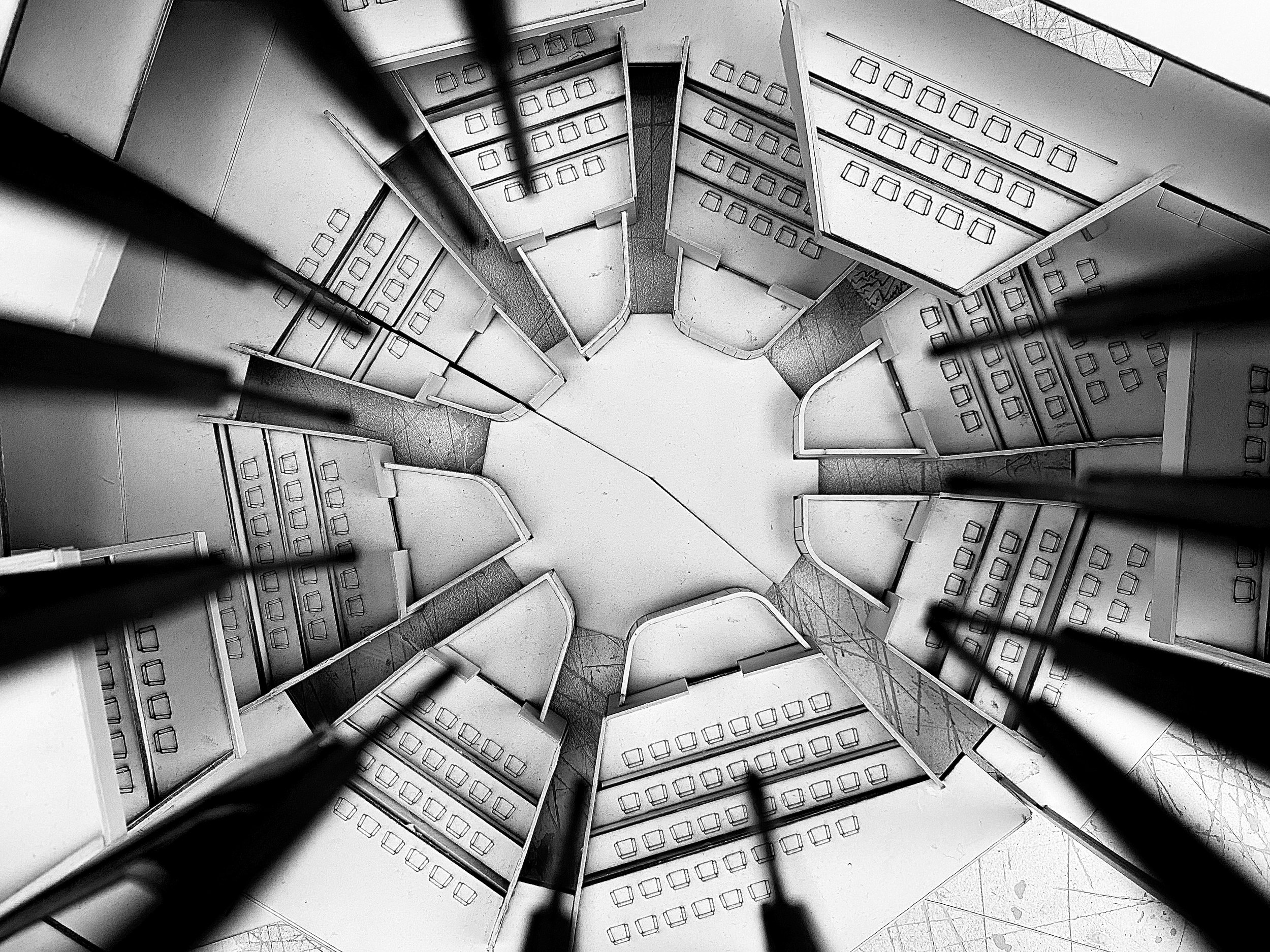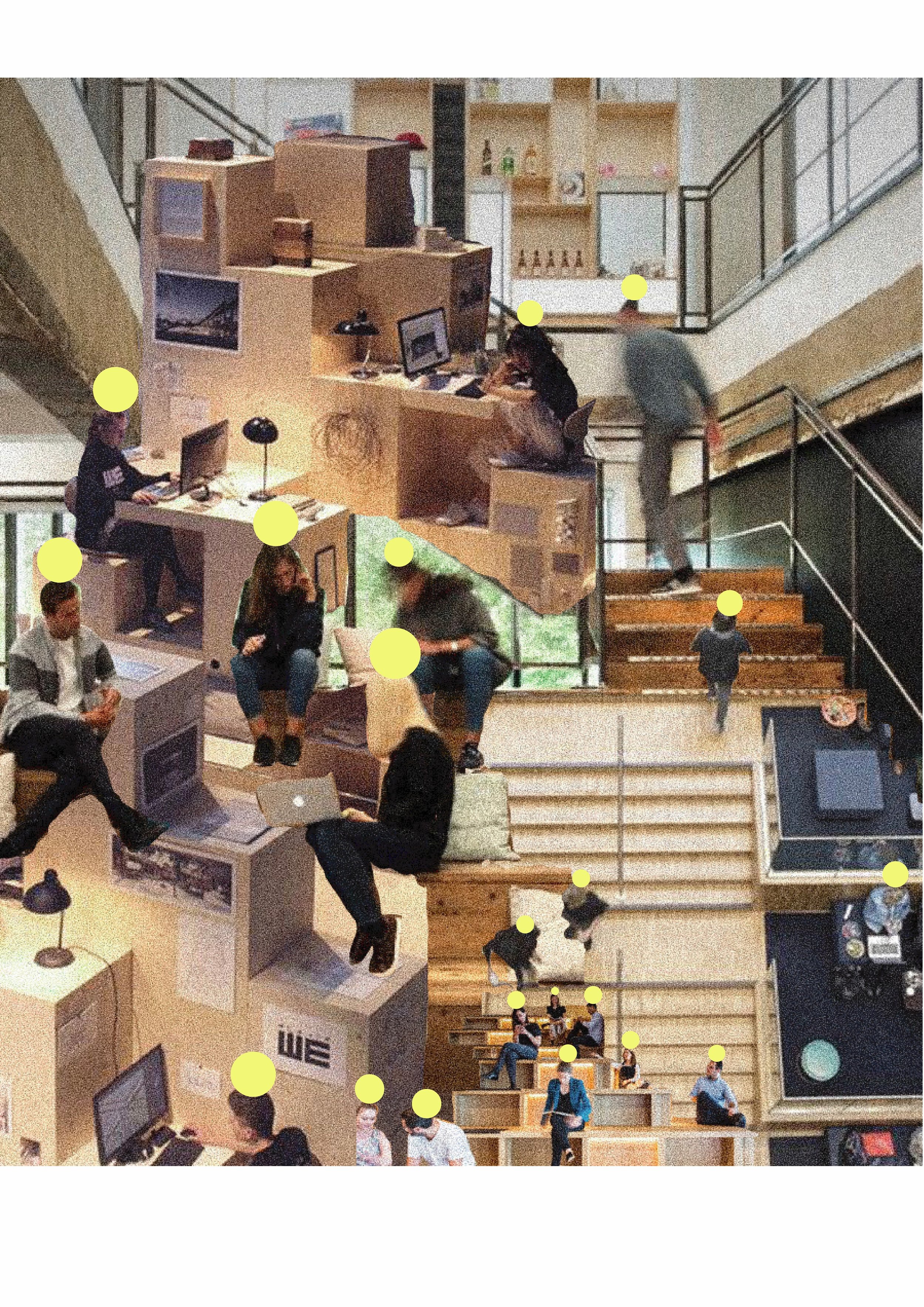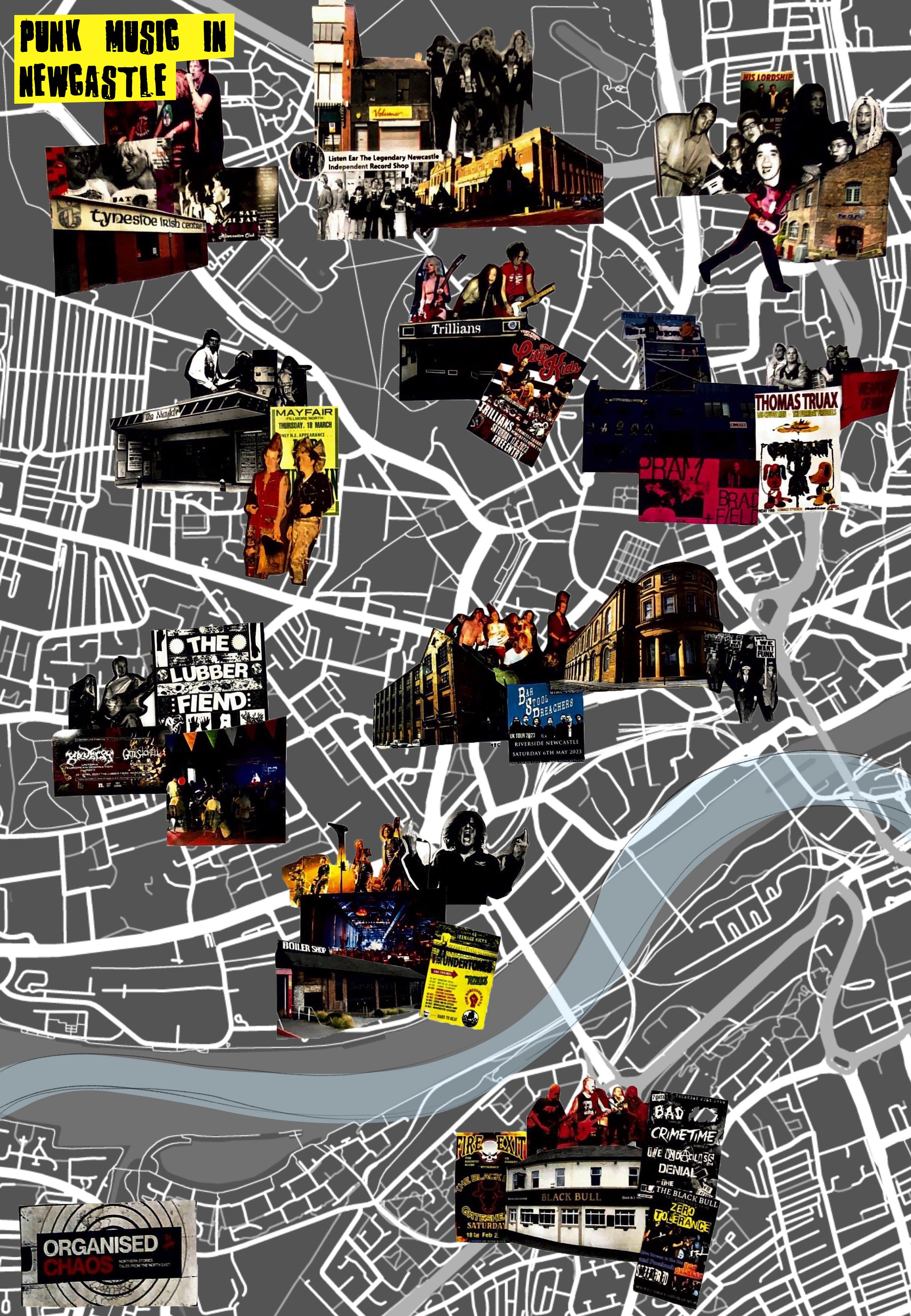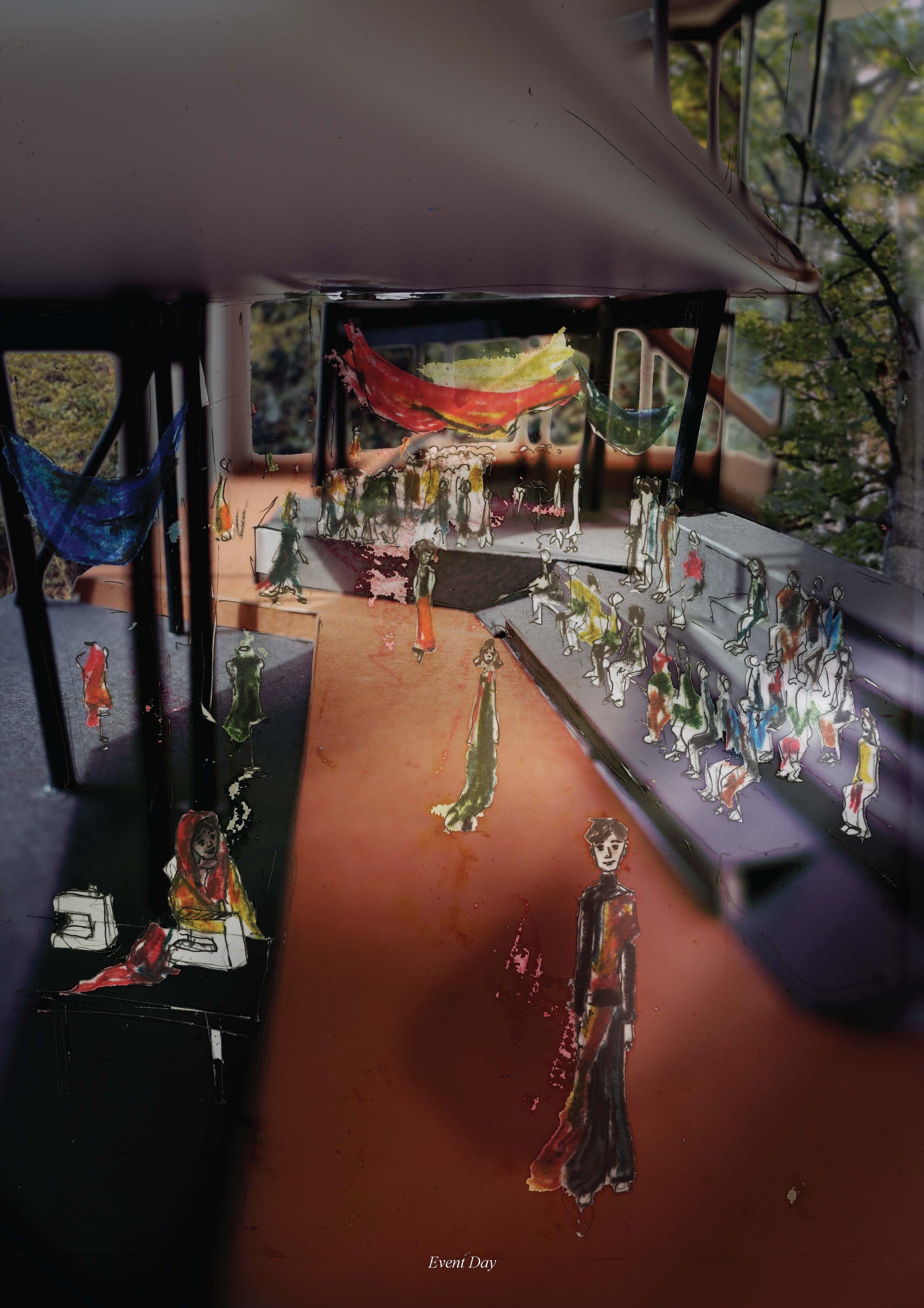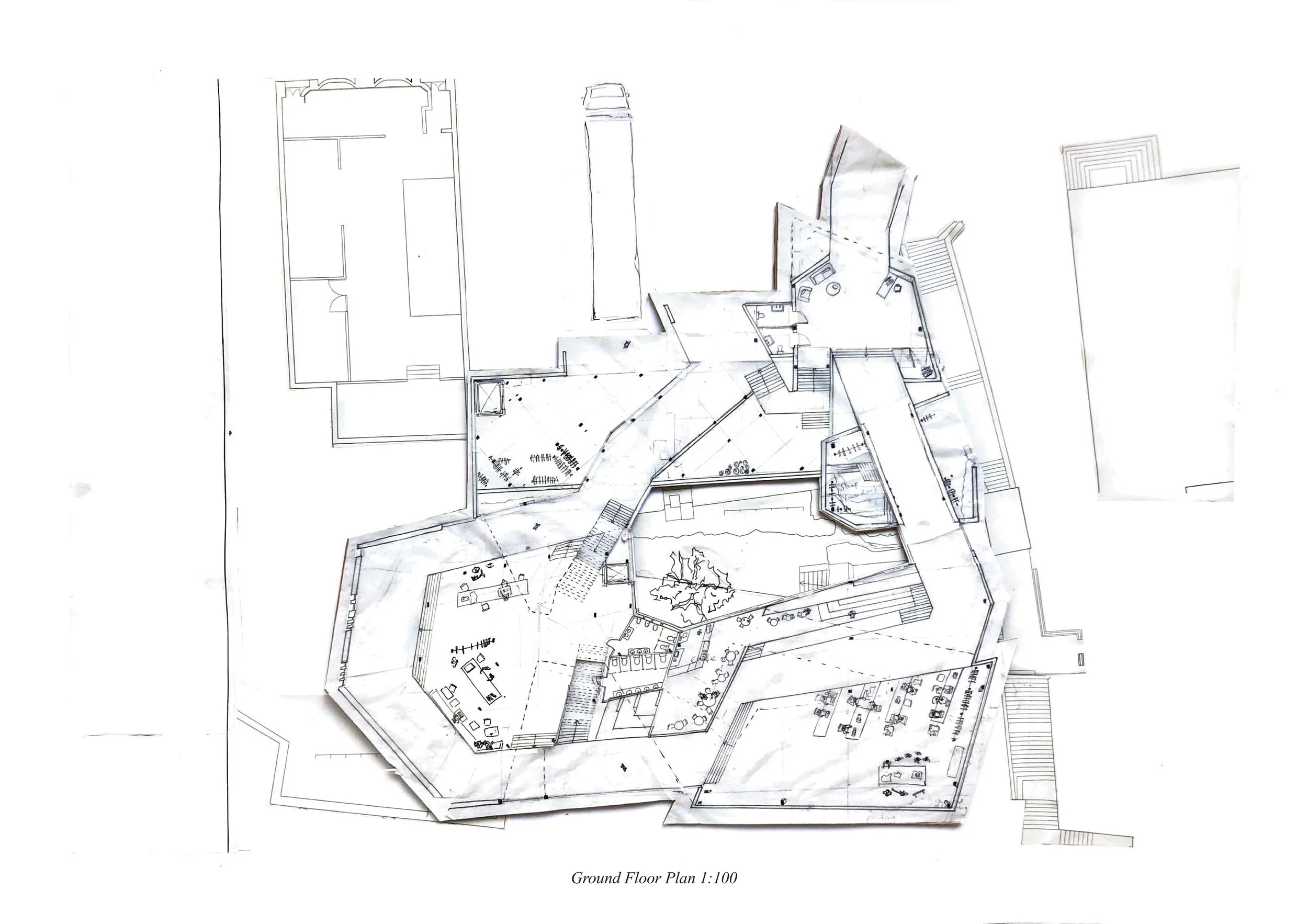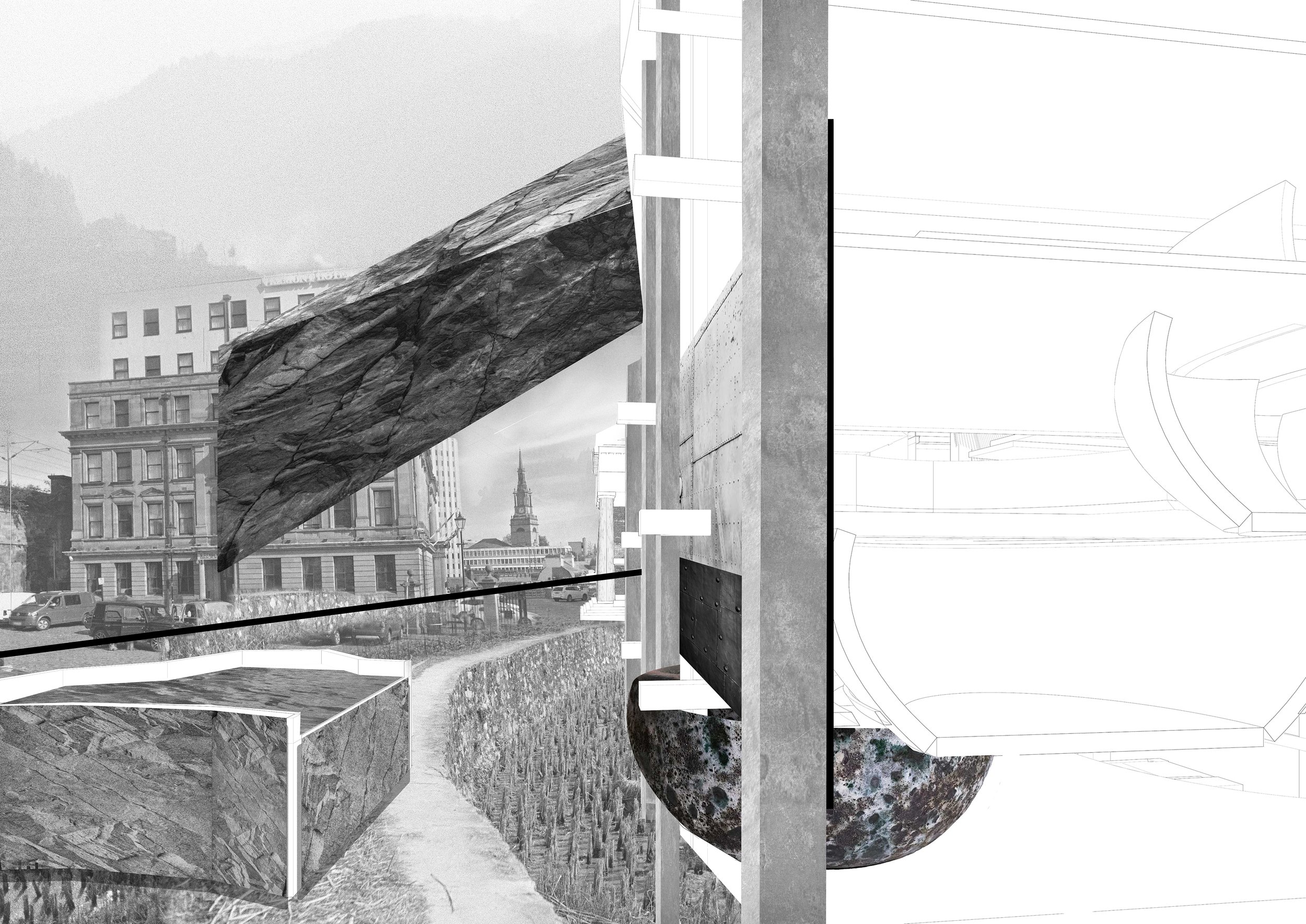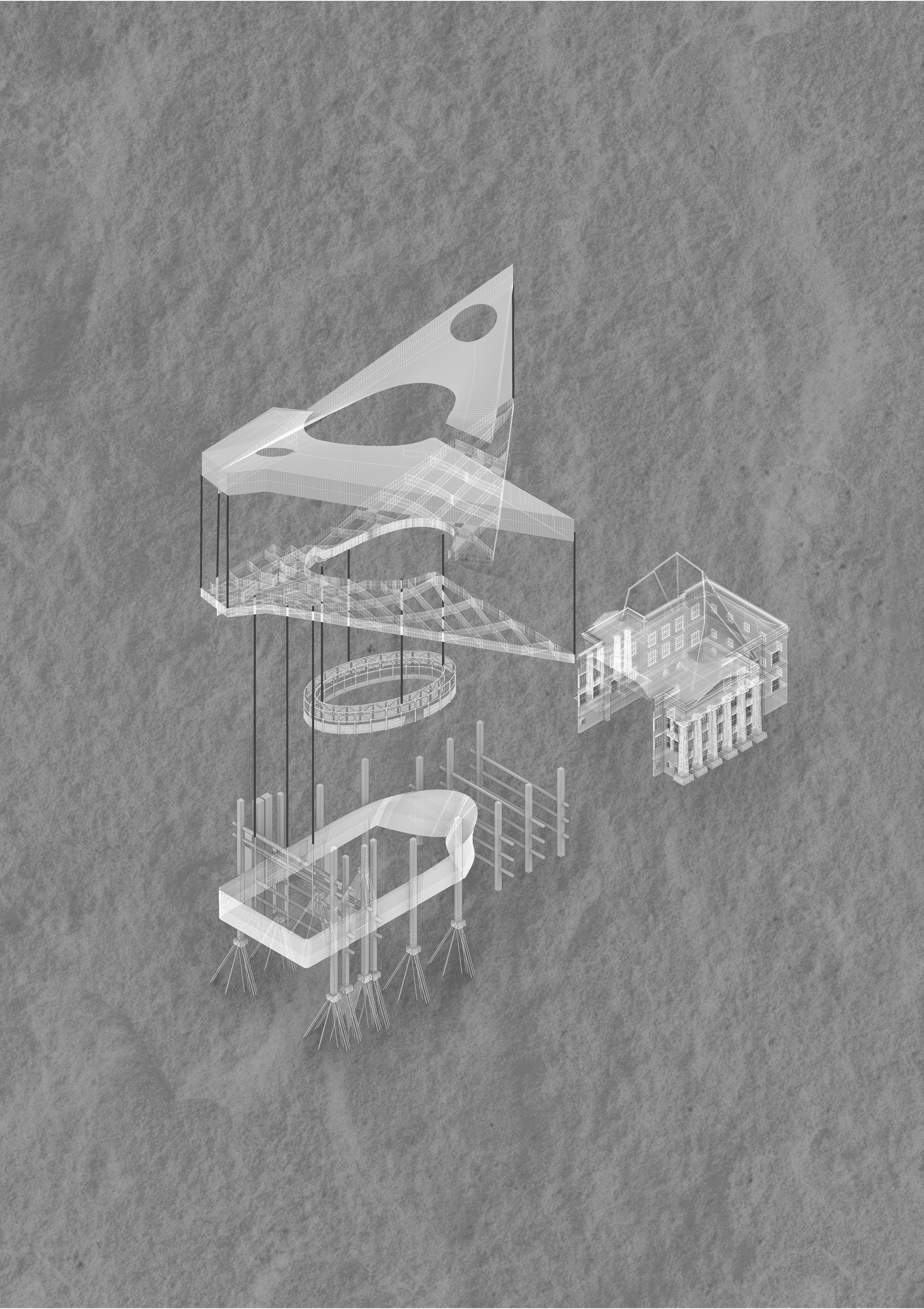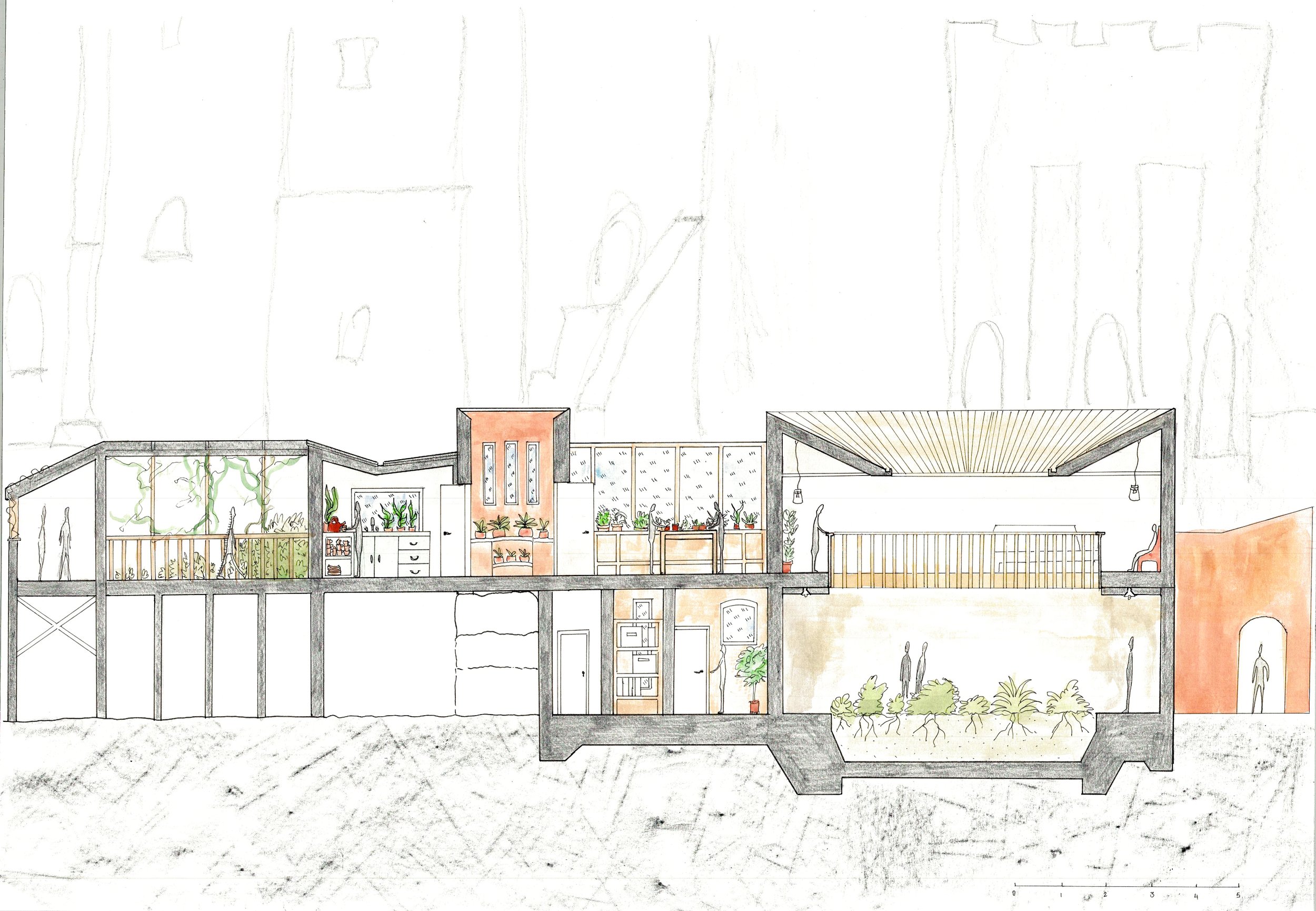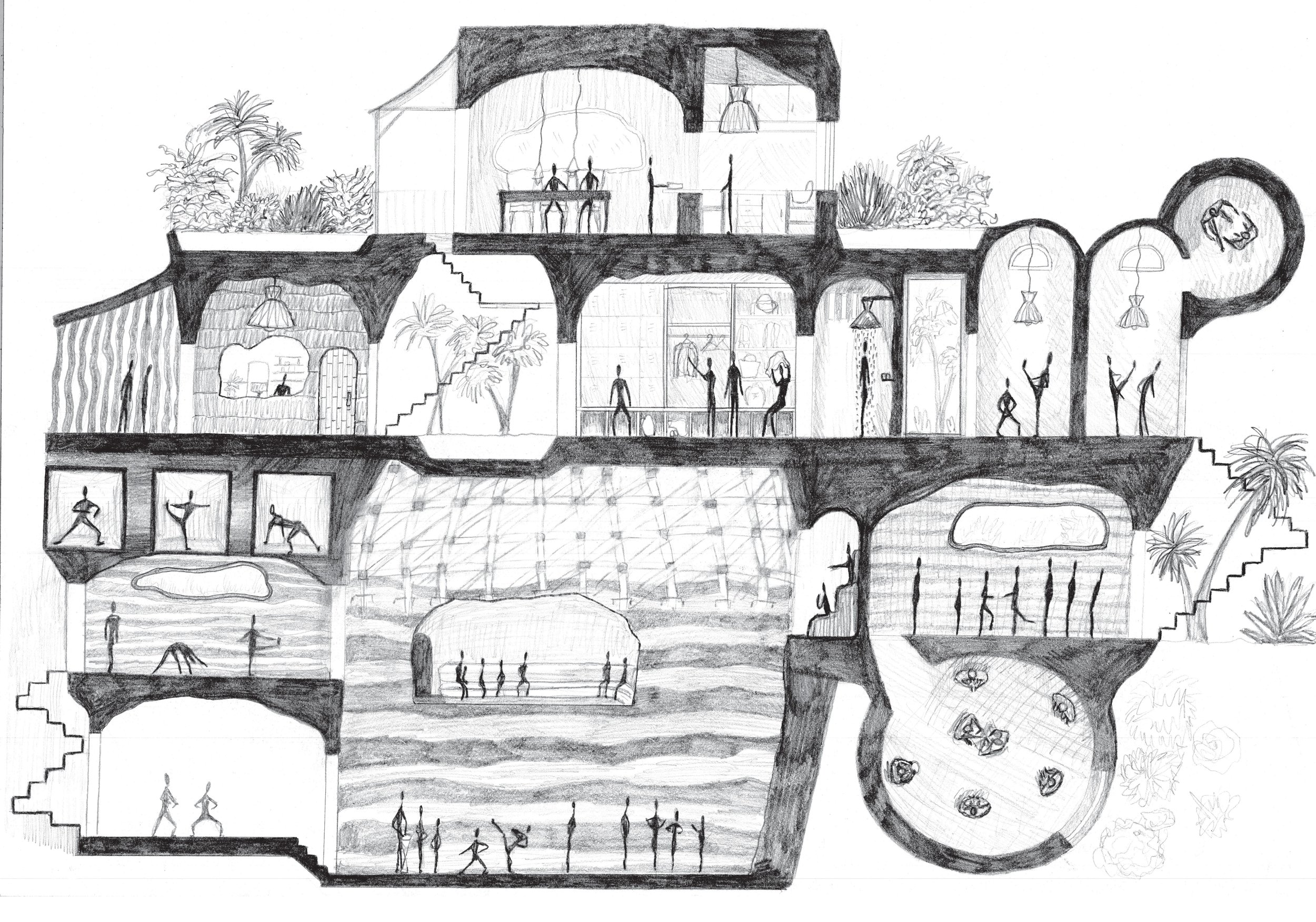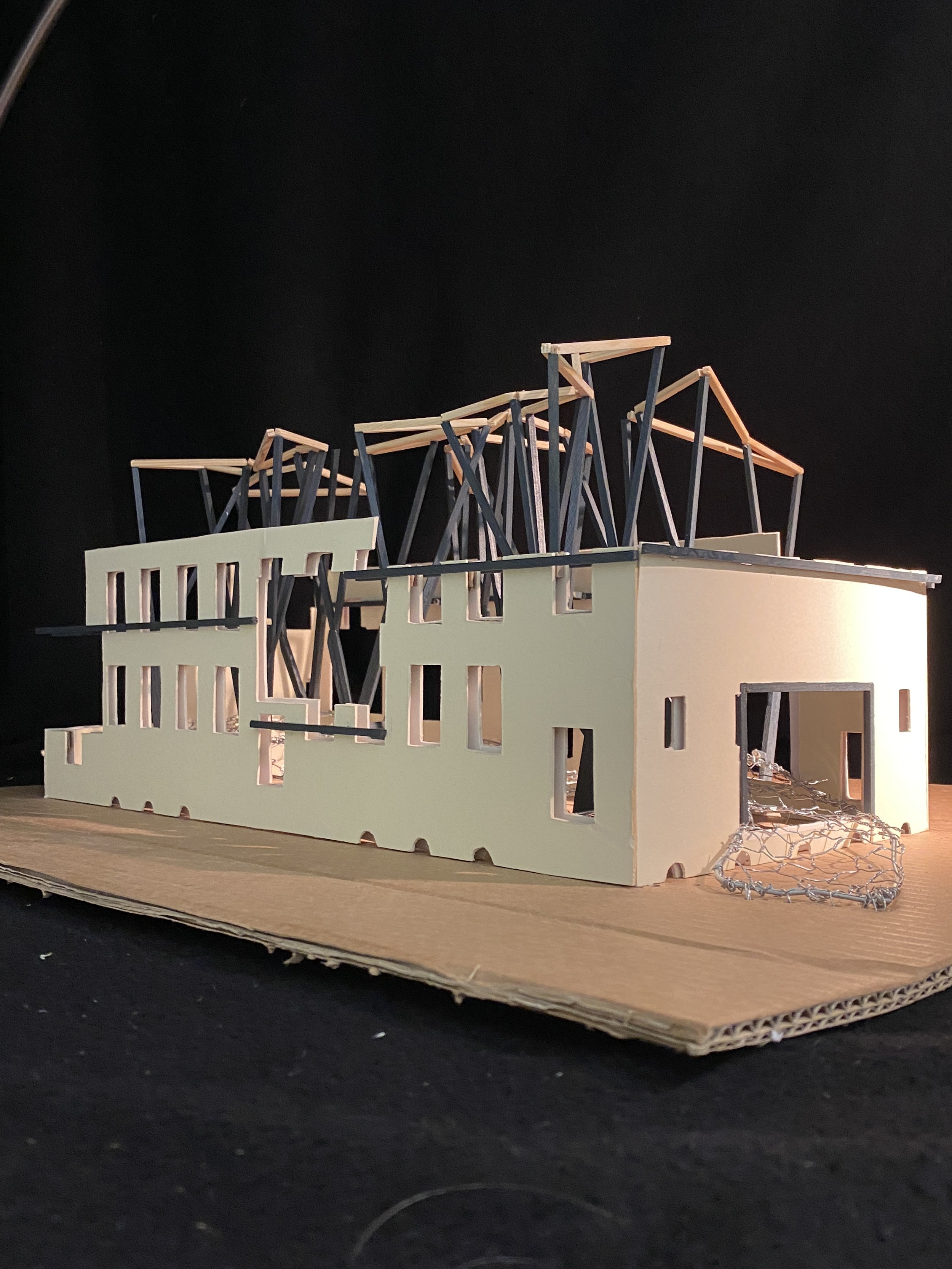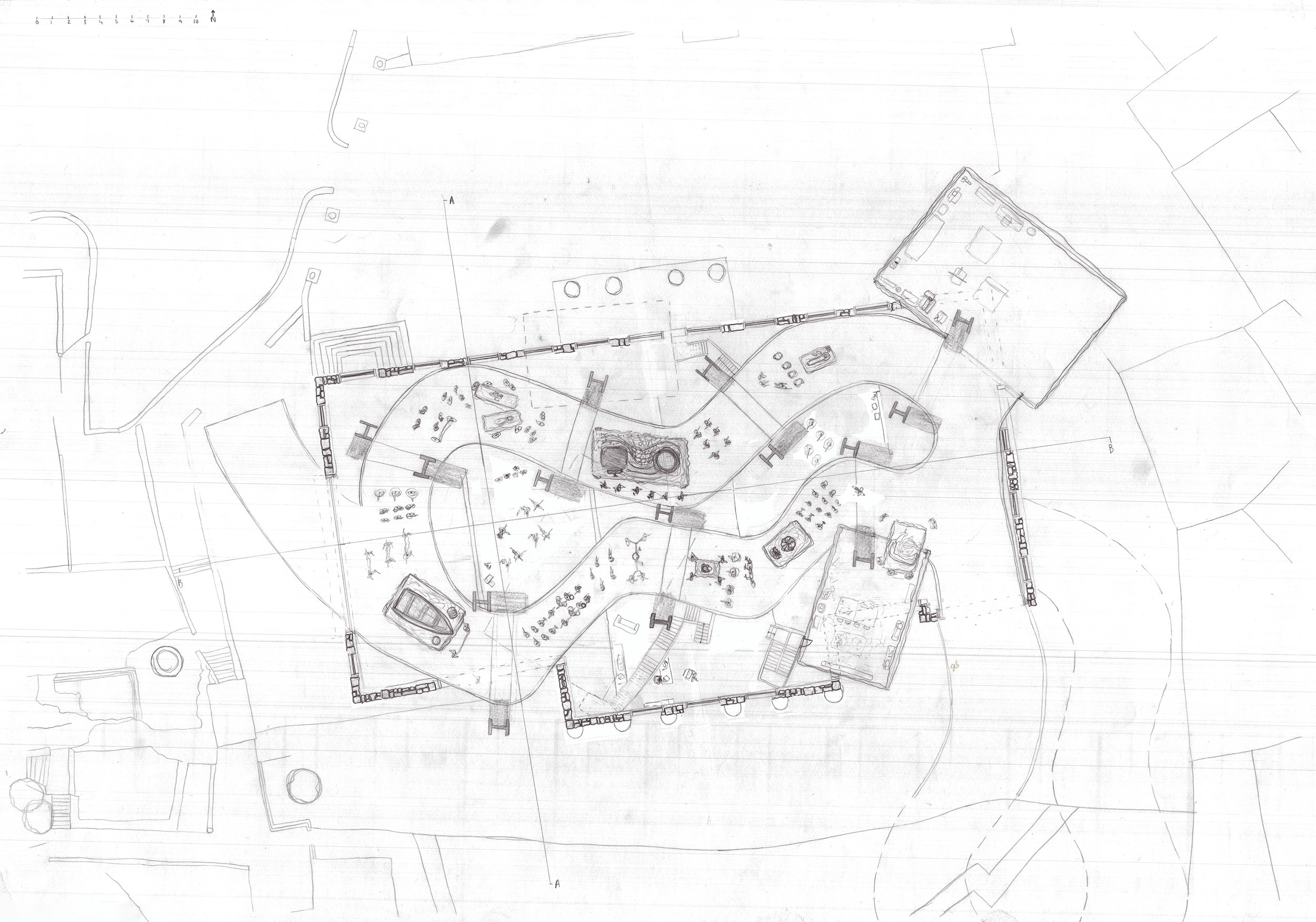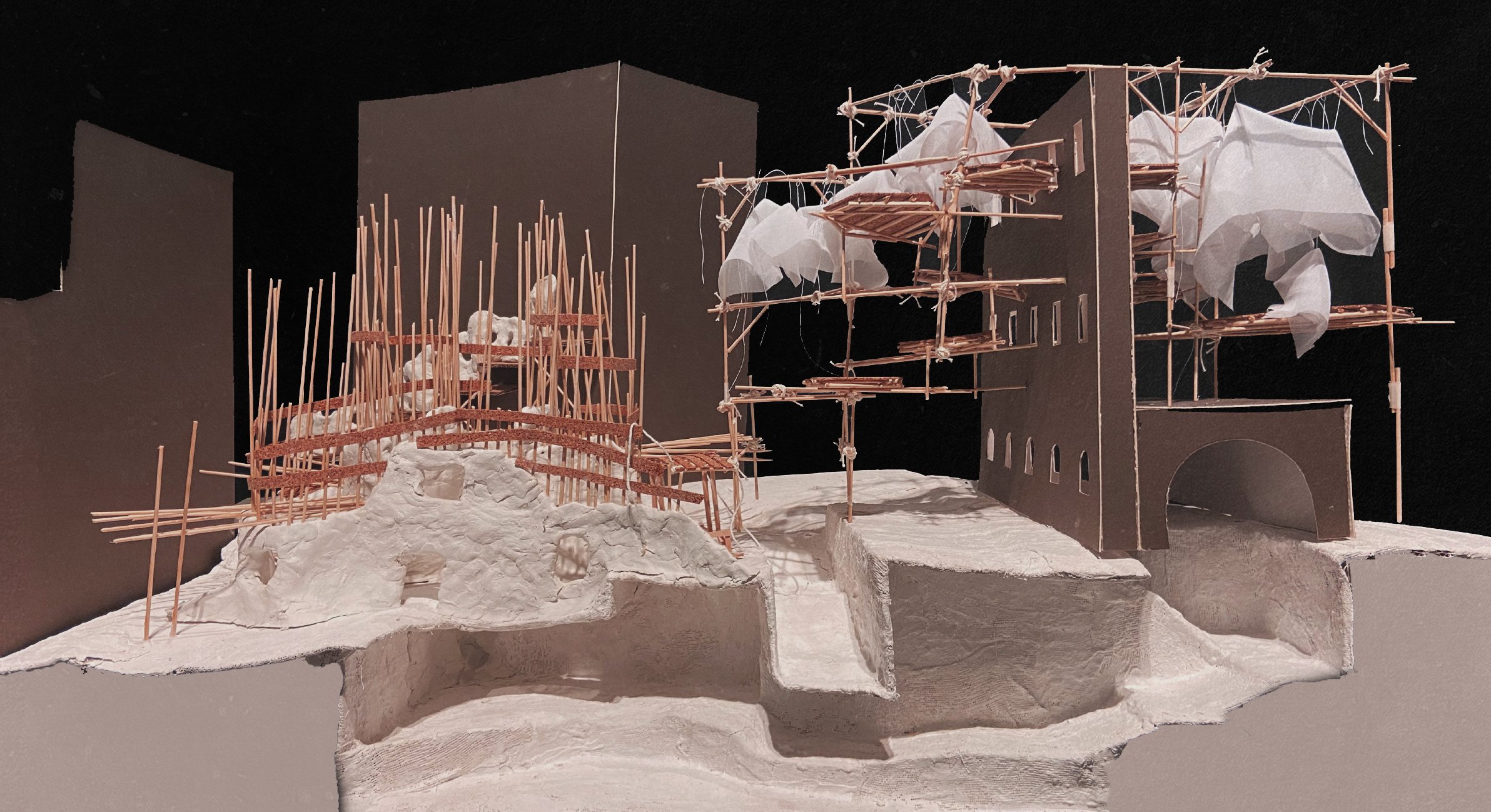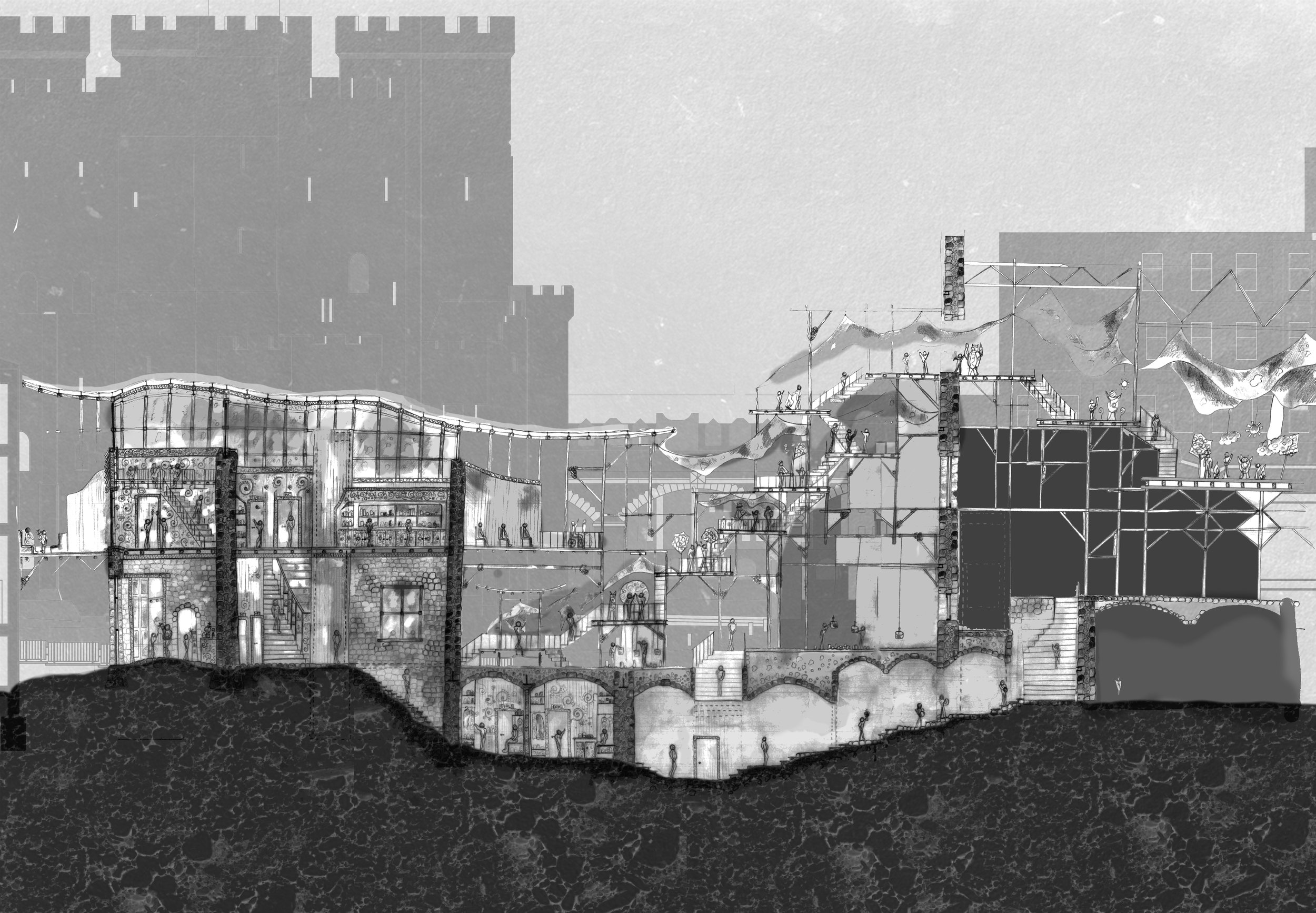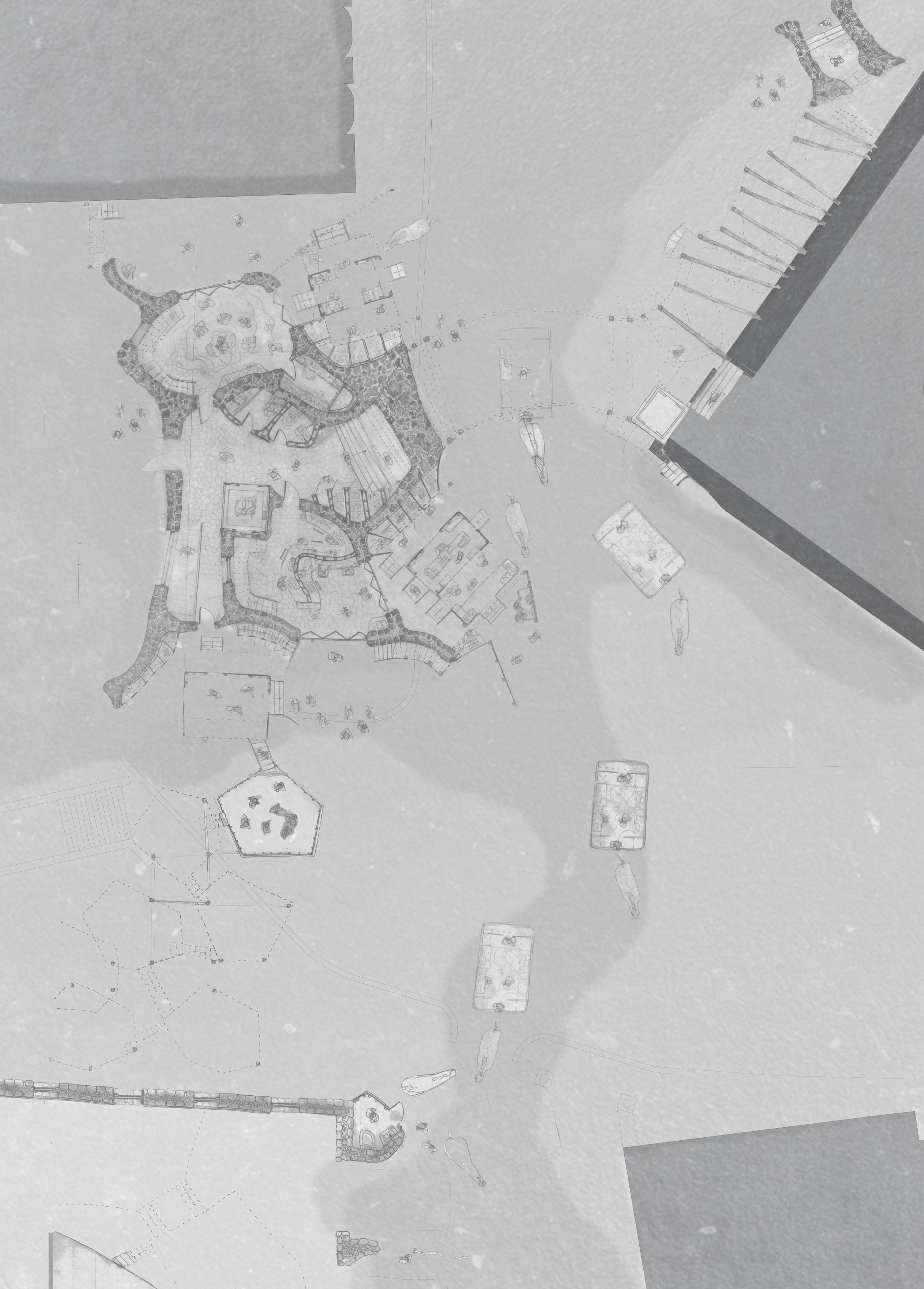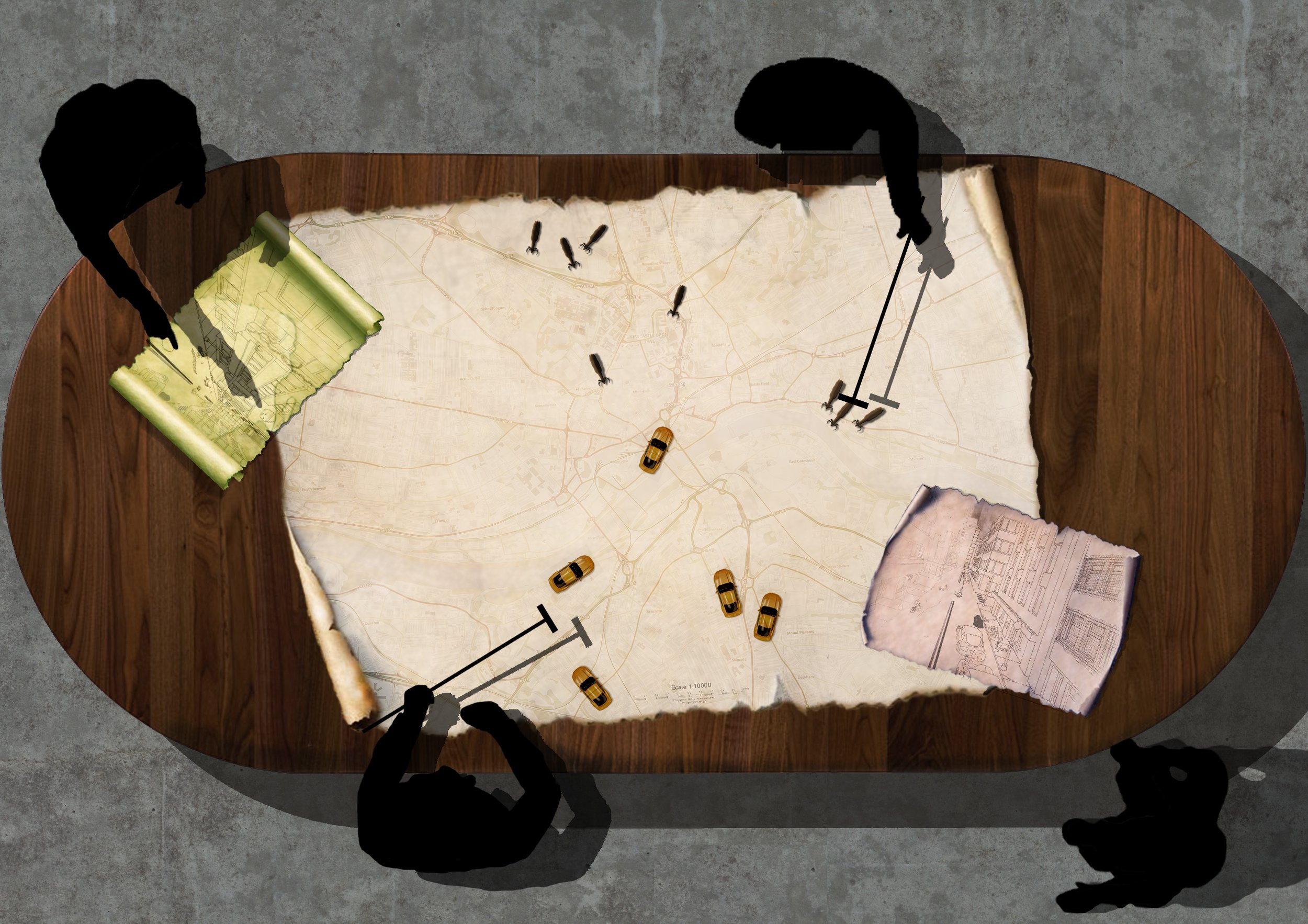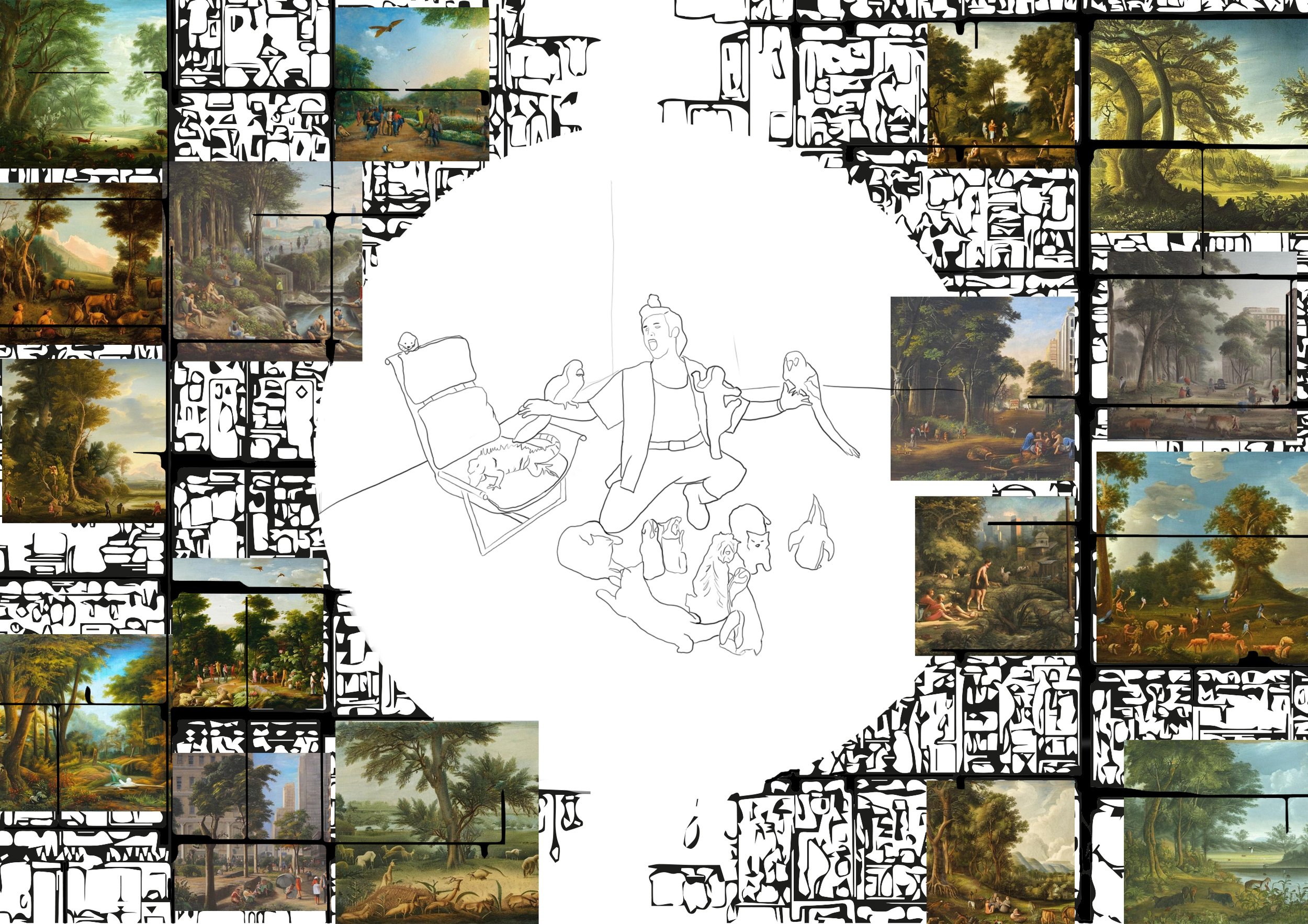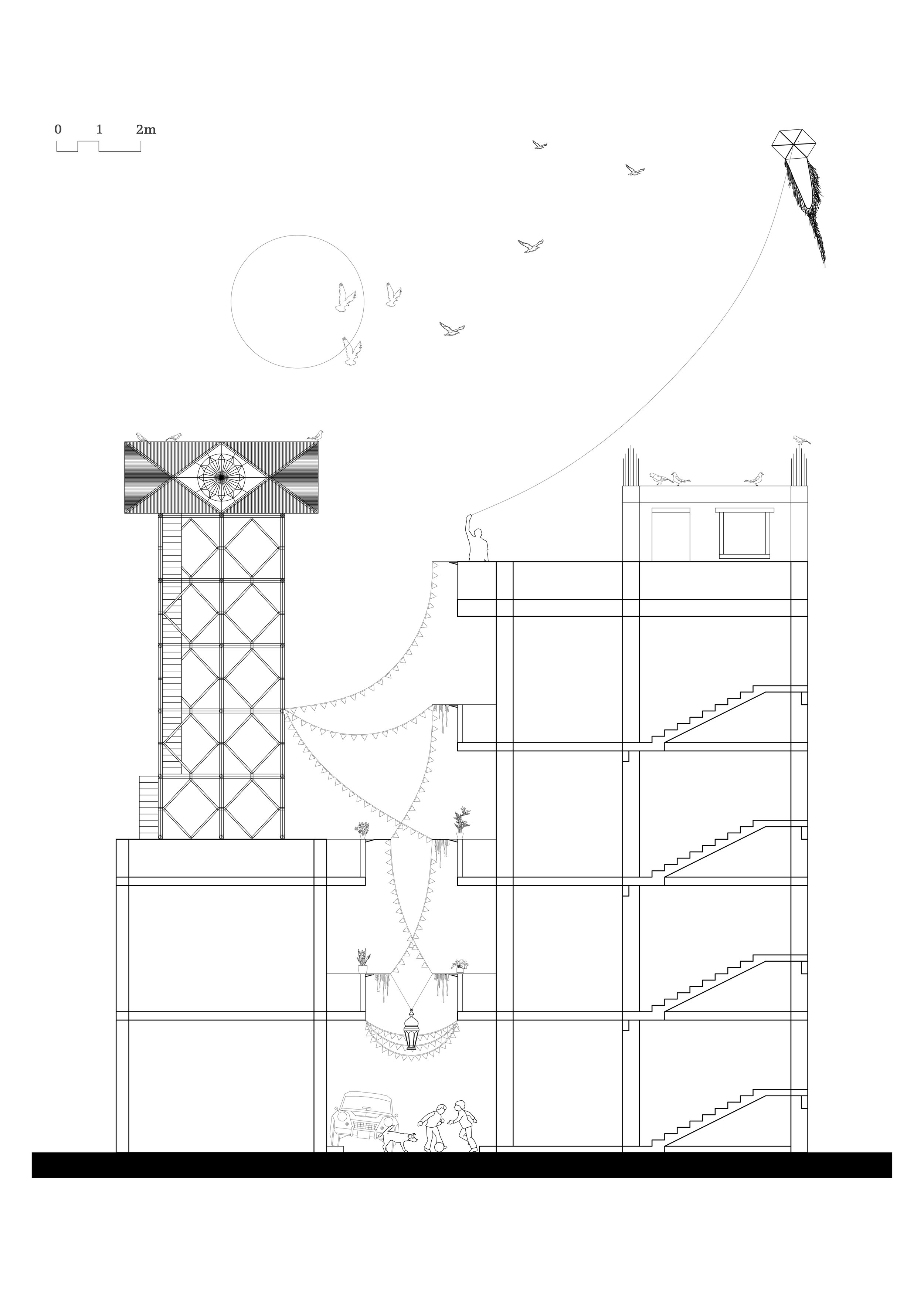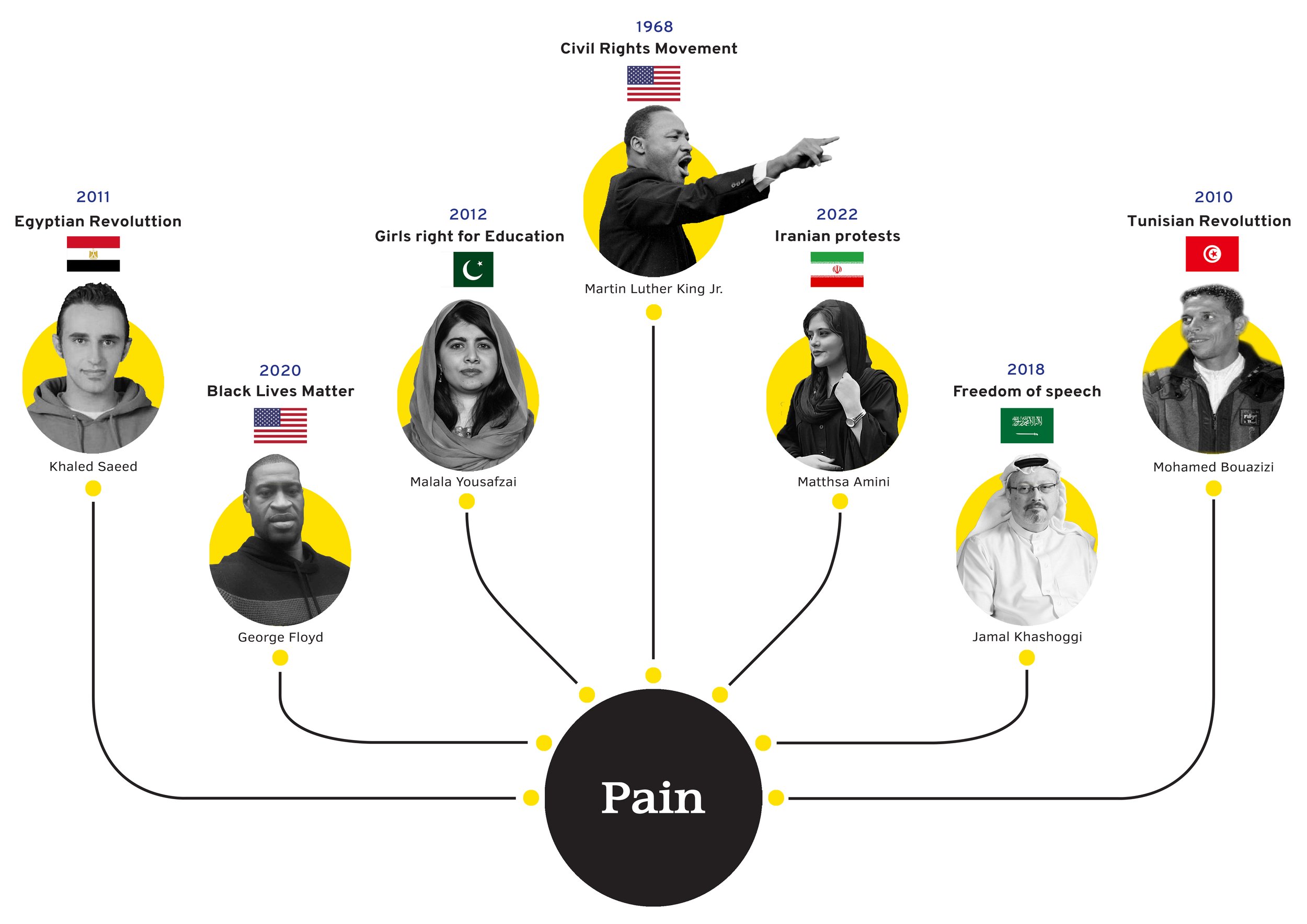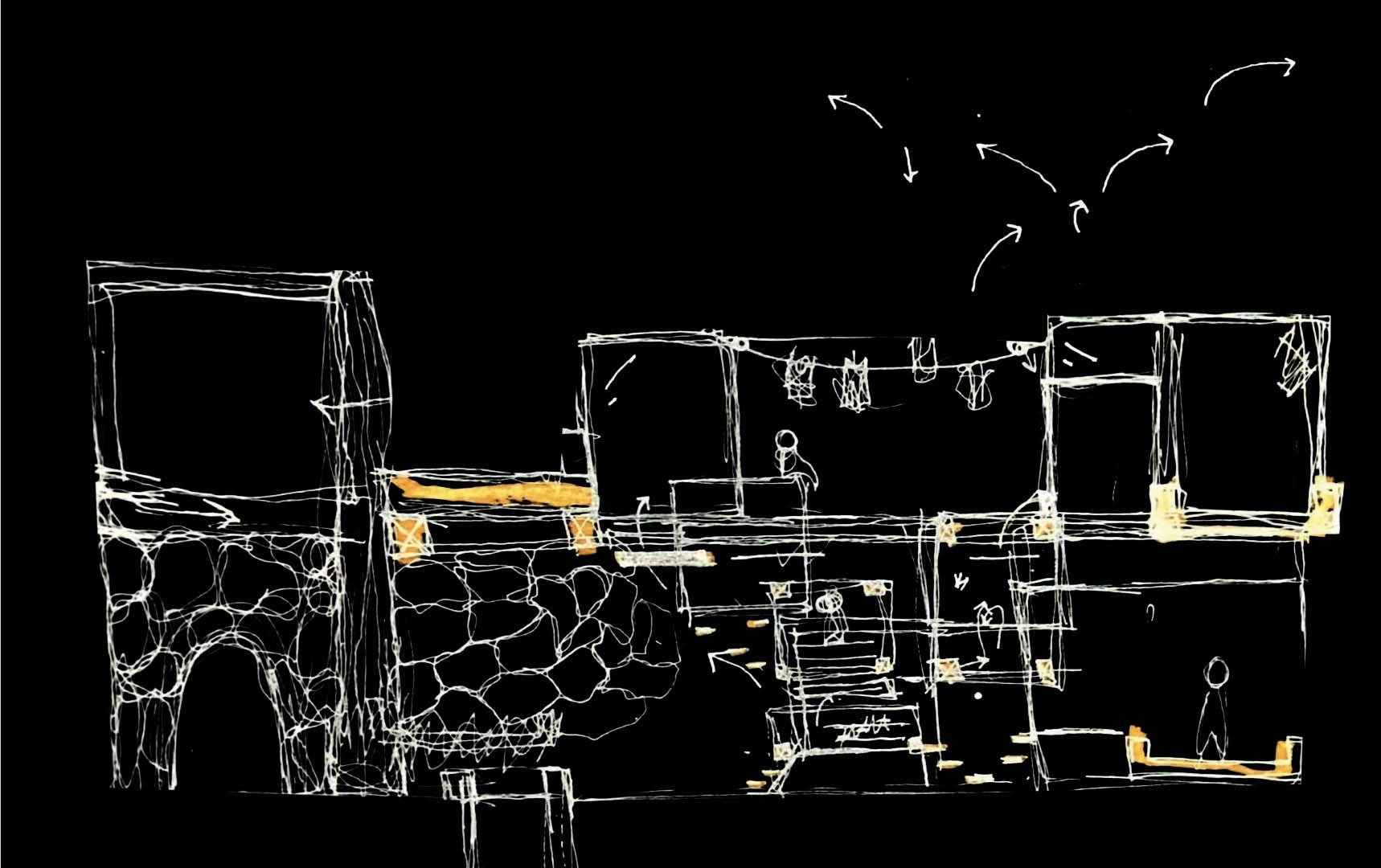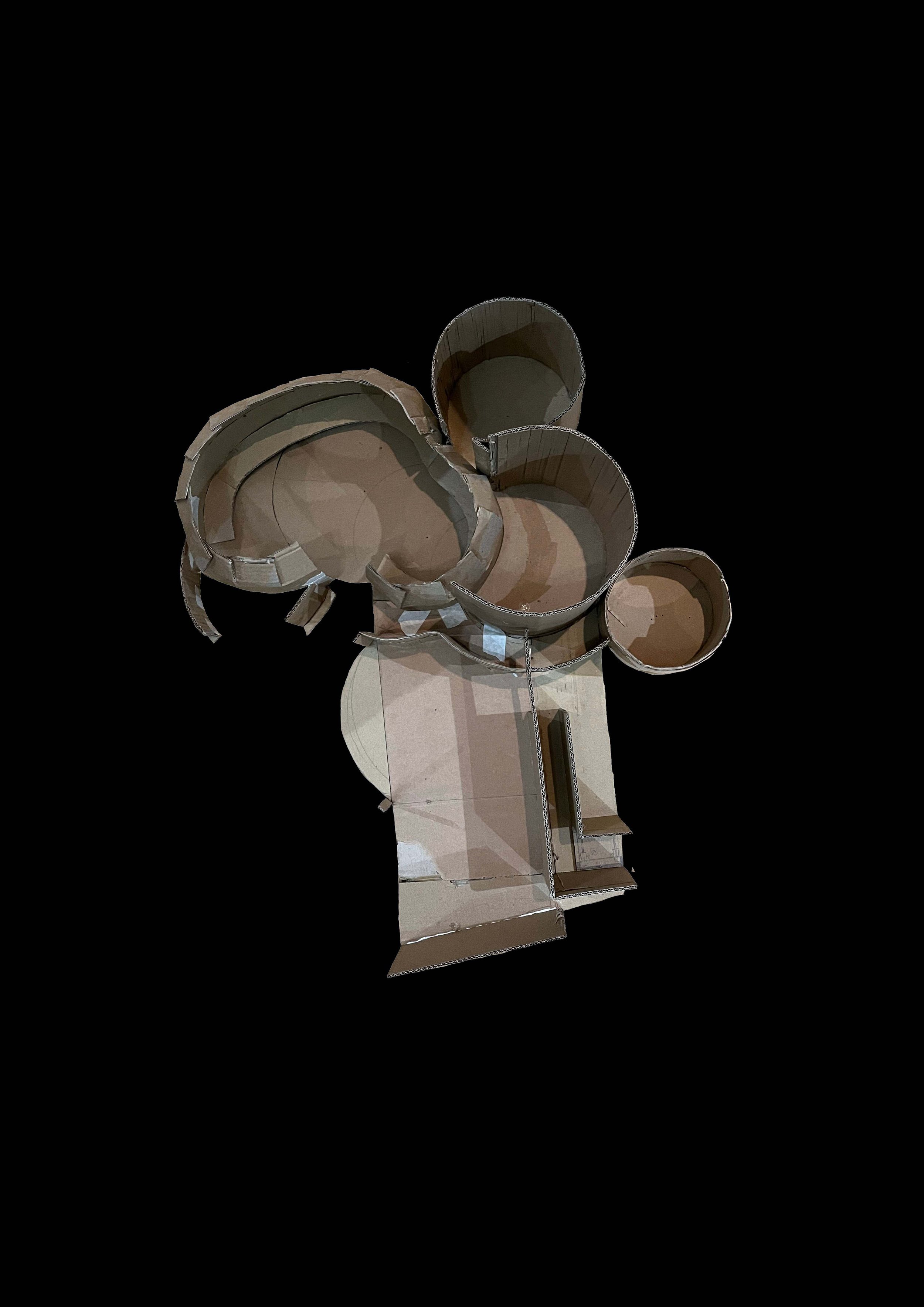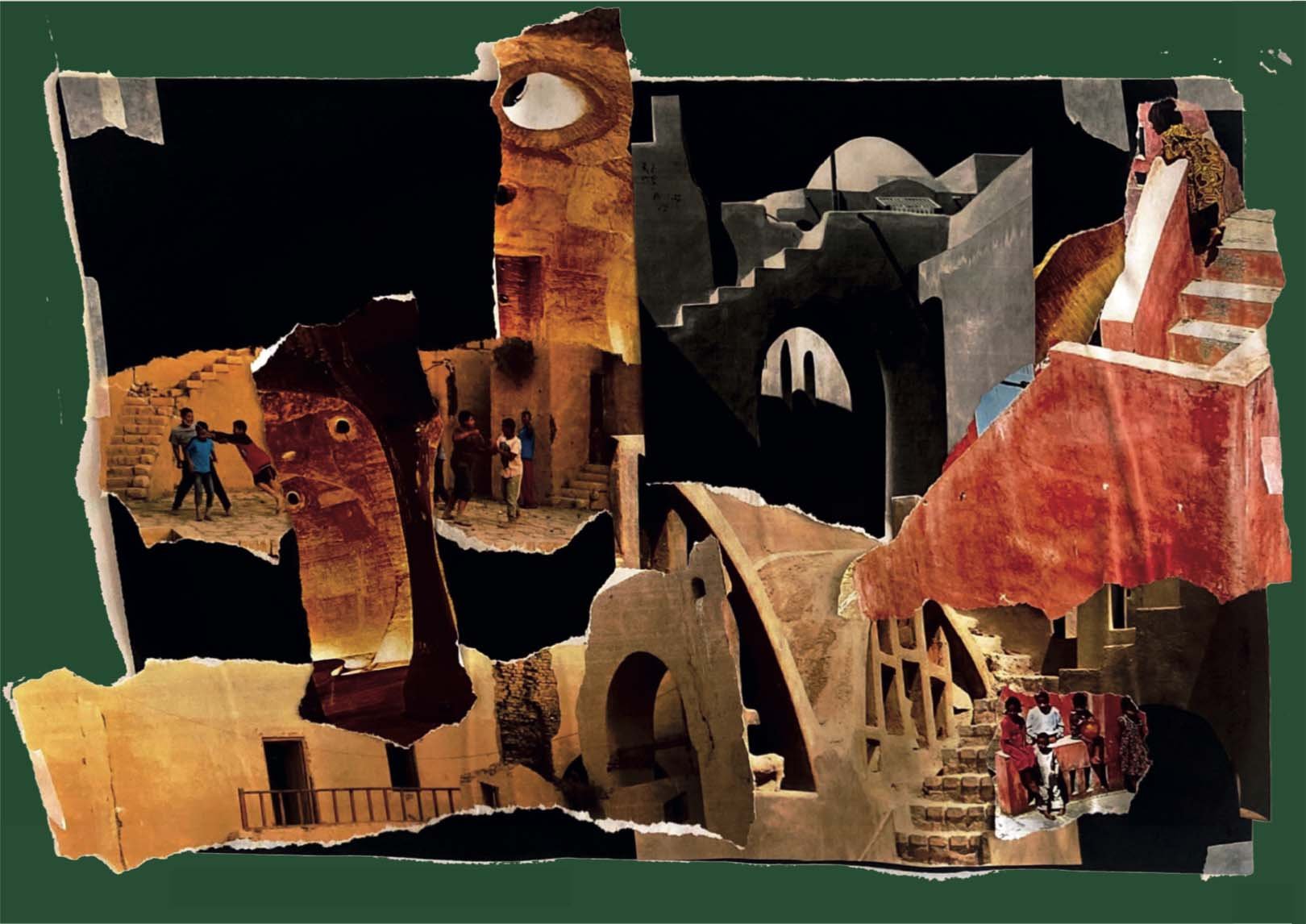Unit G
Breaking : Binaries
-
Toby Smith - Unit Leader
Ayanna Blair-Ford - Unit Tutor
Justin Chapman - Technology Tutor
Matthew Bolton - Structures Tutor
-
Betty Owoo, Emily Chooi, Alex Lacatusu
+
Marko Milovanovic, Unit K
Tom Jelley, Unit E
Kirsty McMullen, Unit J
Felicity Barbur, Unit H
-
Year 02: Adam Albarah, Belinda Inci, Champion Kieron, Linara Nakipova, Jacob Simpson, Maria Stan, Shathursan Vamathevan, Kaitlyn Wynn
Year 03: Ethan Cheung, Hannah Cross, Alfie Gurtler, Isobel Harrison, Carla Kyalo, Oren Mozafi, Alex Nakonecznyj, Lillias Parsons, Virali Patel, Chloe Richardson, Sean Taylor, Samantha Whetstone, Ella Zabel
Western society is obsessed with putting things and people in boxes, reflected in increasing polarisation and blinkered binary attitudes: Black White, Racist Anti-racist, Pro-choice Pro-life, Left Right, Leave Remain, Male Female, Gay Straight, Working class and the 1%. Media fuels the divide in an echo chamber of tribalism without space for tolerance or understanding, while democracy, truth and fact feel increasingly fragile, as binary thinking, enshrined in legislation, policy and behaviour prevent us from seeing each other as people, and puts architecture in a critical position, as buildings make divisions physical, embedded in cities and society.
Rebelling against the binary, Unit G explores how architecture can encourage empathy and understanding between complex human beings, to promote equality and inclusivity, deconstructing binaries while acknowledging difference. The projects, based around Newcastle’s “Castle Stairs”, grow from a personal exploration of division and consensus to increasingly public interventions that tackle complex social issues of politics, economics, race, and gender, actively learning from other cultures and societies that already reject the binary, to consider how architecture can fight the “Violence of Classification” in celebration of people’s messy and diverse reality. Through question and invention the projects expose and unpick existing binary thinking, harnessing architecture’s ability to transform attitudes and offer inspiration to reshape cities and society in non-binary future.
While architecture can’t solve all the world’s problems, it can start asking the right questions.
Oren Mozafi - Sensorial Reawakening - What makes one feel alive? There is more to feeling alive than just proving that one is alive, it is a sensorial state of experiencing the surroundings. Hence, both my projects focus on enhancing the sensory experience ane reintegrating into the city of Newcastle, using two extreme user categories: blind people and addicts. ‘The Sight of Sound’ is my Semester 1 project in which I designed a sensory reawakening facility for blind people. The facility focuses on training the tactile and auditive senses in order for the users to be able to reintegrate in Newcastle and feel like they have come back to life. ‘The Garden of Earthly Delights’ is my Semester 2 project that focuses on drug addicts coming back to life through a horticulture rehabillitation program. The rehab which I designed focuses on all 5 senses, to allow its users to enhance their experience and be given a second chance into fighting their addiction. A marvellous garden available for all the locals is created by the addicts as a conclusion of the fight they had in coming back to a new life.
Oren Mozafi
Oren Mozafi
Oren Mozafi
Oren Mozafi
Oren Mozafi
Jacob Simpson - The Newcastle Trust Project - This year I have looked at the divide between trust in individuals and why we trust things in our life; how that trust is manifested, lost and regained. In the second semester especially I went deeper into looking at a group of people who particularly do not trust each other. After creating a large list of options, I settled on looking into the complexities of divorce and breakdown in trust in marriages and if it is a possibility to rebuild said trust through architecture. I started my research on our site in Newcastle, looking at things which had been ‘lost’ on our site. Things that there might be traces of but are merely ghosts in the world we live in today. I found several lost industries which founded Newcastle in the 1800’s as an important trading city and decided I wanted to revive two of the industries that I thought could go hand in hand. Brewing and Glassblowing. In my project, ( a microbrewery and glassblowing studio which also doubles up as a place for marriage counselling ) trust is manifested in every single aspect of the design. In the building, I imagine there is a brewer and a glassblower in charge who are married to one another who guide the couple once a week through a different stage of the process of either brewing and glassblowing and the couple do certain activities or tasks for the pair. They then receive counselling from the married brewer and glassblower in exchange for the work they have done. The brewer has to trust the glassblower to make enough bottles for the amount of beer to be produced so that there is no waste so the trust is very present in the building and if that was not enough, the structure of the entire building heavily relies on itself to stand up. The tensegrity and strain on the building reflects that of a marriage with the complications and compromises involved with a successful marriage.
Jacob Simpson
Jacob Simpson
Jacob Simpson
Jacob Simpson
Jacob Simpson
Jacob Simpson
Kieron Champion - Refugee Orchestra - This project creates an orchestra for musicians who have been forced to become refugees - leaving their home countries to escape persecution or conflict, welcoming them into the sanctuary and community of Newcastle. The project features a flowing form that is shaped by the music played inside. The metal columns that form the exterior structure are constructed in such a way as to play the tune of Alunde Alluya; a Sudanese lullaby. The project offers counselling, practice spaces and ultimately an income through the orchestra to any refugees who pass through, with the whole timescale being focused around the UK governments failing migration laws.
Kieron Champion
Kieron Champion
Kieron Champion
Kieron Champion
Kieron Champion
Linara Nakipova
Linara Nakipova
Linara Nakipova
Linara Nakipova
Maria Stan
Maria Stan
Maria Stan
Maria Stan
Maria Stan
Maria Stan
Shath Vamathevan
Shath Vamathevan
Shath Vamathevan
Shath Vamathevan
Shath Vamathevan
Shath Vamathevan
Alex Nakonecznyj - Newcastle City Parliament - Many of us have made ourselves absent at the face of politics without even realising. We have been made to be so preoccupied with our lives that the thought of resisting is inconceivable. We feel so far removed from taking control because we never truly had a taste of it. We have been made to lack independence and have become subservient to our worldly interests, un-affording to deviate from the mere faith of our familiar western democracy. But this long conformity has only deadened our power to truly judge the evidence. Once revolutionaries would turn moral judgement into action but now it’s time we do the same. The divide between the governing and the suffering is especially experienced by underrepresented groups living across the country. This is particularly prominent in Newcastle where there are plenty of vibrant and diverse communities.Time and time again councils and authorities have proved to be ineffective in handling social issues, improving living standards for citizens and well representing people and cultures within the city and this sounds all too familiar when we turn to look at our national government.The issue is systemic and the government is riddled in bureaucracy. It’s time to take back control. It’s time to put people at the centre of politics and not the faceless politicians. Semester two’s project is about realising a new form of parliamentary space that invites anyone from a variety of communities in Newcastle to convene and make decisions that would otherwise be made by the existing council. The building includes the main plenary chamber, designed in such a way that reorganises groups and individuals to manipulate and create a newer and fairer form of discussion. It also includes a bar, a less formal setting where people can debate and have discussion over food and drink, as well as an Oxford Union style debate chamber and library where newcomers and students can overlook the plenary chamber and learn more about politics and getting involved.
Alex Nakonecznyj
Alex Nakonecznyj
Alex Nakonecznyj
Alex Nakonecznyj
Alex Nakonecznyj
Alfie Gurtler - Affordable Housing Works
Alfie Gurtler
Alfie Gurtler
Alfie Gurtler
Alfie Gurtler
Carla Kyalo - This academic year my work has had a clear focus on identity closely linked between traditions and cultures. As an aspiring architect I have always had a keen interest in architecture that intimately and purposefully aims to work for and with the users that we build for. There is so much beauty in understanding the needs of our users that ultimately leads to designs that are more than externally beautiful. In Semester 1 I focused on bringing a relationship between the women of the Maasai Tribe in Kenya, the Blacksmiths and the future women of STEM in Newcastle. The one thing they have in common; being underrepresented groups that have important roles in their communities. I wanted to bring these three identities together to uplift cultural and social identities by creating a Blacksmithing School. Inspired by the hardworking ethos of Maasai women as an inspiration for young women, whilst reinstalling the cultural and historical identity of Newcastle's industrial past through Blacksmithing. My second semester project again followed the beauty of identity, but not through the physical like Blacksmithing but something more experiential and emotive. That thing being language. I focus on my lack of connection to my native language of Swahili and how I wish I had a better understanding of it. Which made me look at all the languages spoken but lost or broken, throughout the UK. I wanted to create a space where language and culture could be shared together, with the best ages to learn languages being between 5-12 and the best way to learn language being through performance. I began to design the Newcastle Language Culture Theatre, where young children could learn about different cultures through theatre and music.
Carla Kyalo
Carla Kyalo
Carla Kyalo
Carla Kyalo
Chloe Richardson - Protesting in Newcastle - My work this year has been heavily influenced by the Police, Crime and Sentencing Bill of 2022, and the negative effects it has had on protesting. The bill aims to simplify protest management for police, but many activists and citizens desire to express their views without fear of arrest, imprisonment, or excessive restrictions, which therefore neutralise the effect of protests. Therefore my projects have been based around aiding the public in protesting peacefully, but with impact. Semester 1 began with looking into authorised versus unauthorised political acts of resistance. This took me to printing protest posters. My project became a printing shop, that had a daytime agenda and a nighttime agenda. The daytime agenda: working as a printing service for customers, meeting their day to day printing needs. The nightime agenda: designing and printing political posters and pasting them up around Newcastle in order to promote a political message. In semester 1, I used a number of printing processes and street art techniques to develop and present my work, including block printing, stencil work and spray painting. In semester 2, still focusing on my binary of authorised versus unauthorised political acts of resistance, I began looking into the music industry. Punk has a huge history of protesting and resistance to higher powers, and so I decided to focus my project on this. My project is about taking an punk band from the amatuer music scene, allowing them to record in quality music studios to creat their own punk-protest music. Punk music was big in the 80s, however the scene has died down somewhat. Therefore, this music is then performed very publicly (and broadcasted through intercepting radio stations) to promote a political message and to help to bring the punk scene back.
Chloe Richardson
Chloe Richardson
Ella Zabel - The Newcastle Garment Factory - The project is an ethical garment factory right by the Newcastle Castle and historic Hadrian’s Wall. The aim is to educate underprivileged 16-18 year olds through apprenticeship programs to design and make garments. The employees are skilled immigrant textile workers who otherwise struggle to find work in their field in Newcastle, and the garments are all upcycled through donated goods.
Ella Zabel
Ella Zabel
Ella Zabel
Ella Zabel
Ethan Cheung - Newcastle Upon Tyne sits at the precipice to take charge in how they want their international identity to be seen. Diverting from the years of backhanded support from their own UK government ,from endless council budget cuts to the slimy procedure of the ‘’UK Shared Prosperity Fund’’, and reach out on a global scale. Showing that the North has become undervalued, underused and overlooked, encouraging the idea international immigrants are critical in the development of the Geordie identity and a culturally understanding community. Therefore, Newcastle and the greater county council of Tyne and Wear have an opportunity to re-establish themselves ,on its upcoming 50th anniversary of disbanding in 2035, as a semi-autonomous county. Taking a stand against the issues of Internationally Displaced People and the new anti-immigration bill in the UK, advocating to build a civic centre that aims to become a gateway for all people into Newcastle. Building off the success of the Asian American For Equality (AAFE) in Chinatown, Manhattan, a non-profit organisation that is the city’s leading housing, social service and community development organizations. To create Newcastle very own government subsidised organisation of the Asian British For Equality (ABFE) to define the accommodation of the north from most importantly the north themselves. Cultivating the Geordie port cities as the next international cultural hub of the UK.
Ethan Cheung
Ethan Cheung
Ethan Cheung
Hannah Cross - School of Capoeira - Teach children self-control, self defence and how to regulate their emotions using music and martial arts. What is Capoeira?Capoeira is an Afro-Brazilian art expressed through song ,dance and self defence. Capoeira is “played” and does not include or encourage any physical violence. Created by enslaved Africans who were brought to Brazil by the Portuguese, it was used as a way to train in secret, resist capture and fight for escape. For this academic year I have looked at the gender binary, focusing on victims and aggressors in particular. My first semester project became a garden therapy hub for female victims of aggression, using horticulture as a method of healing. However, the second semester project intended to tackle and transform possible future aggressors through the art of Capoeira. The Capoeira School is an alternative option for children who are unable to attend mainstream schools. With the incentive to curb the spike of violence within the city of Newcastle, as well as confront the high number of school exclusions in North-East England. The school will teach aggressive young people to control their physical reactions and emotional feelings. Additionally, the school is open to the wider community of Newcastle, offering self-defence and capoeira classes as after school clubs and evening classes for adults.
Hannah Cross
Hannah Cross
Hannah Cross
Hannah Cross
Hannah Cross
Hannah Cross
Isobel Harrison
Isobel Harrison
Isobel Harrison
Lillias Parsons
Lillias Parsons - The Newcastle Parade Centre - My projects this year have been focused on the agenda of identity. Breaking the binary of whether one’s identity is to a place or to their heritage. Bringing both these factors together in celebration. In this celebration of identity my work discovered new ways to commemorate the city of Newcastle and brought the community together. Both projects ended with a grand finale celebrating the identity of Newcastle and the city’s community. Semester 1 began with the binary of my mothers kilt that had been passed onto me. This resulted in the questioning of my identity. That led me to learn the meaning of the tartan and how it is made up. I followed the same procedures and created a Newcastle tartan, with the wool of the sheep and the plants growing in Northumbria. This symbolism of the national dress took me to discover the Indian community, an underrepresented group within Newcastle. The saree follows similar traditions to the Kilt in the creation of the dress. Combining the two techniques my project made a woollen saree wedding gown commemorating the citizens' combined identity of India and Newcastle through the greatest celebration of all. Semester 2 found ways to further memorialise Newcastle’s identity. By understanding the strong history of the cities’ strikes and protests with a grand finale parade. This project focused on a centre that teaches Newcastle students about its history and worldwide issues. Bringing a team of students together to create the parade marching through the city. The centre enabled the students to build and decorate parade floats, to rehearse music and dance whilst walking as though in the parade. The parade day headed north to the Town Moor, inviting visitors to watch and recognise the message of strikes and protests being portrayed by the students. The parade ends with a final celebration in the Town Moor where visitors, students and those who helped in the parade would come together. The parade centre commemorates Newcastle by becoming an archive of the parade day allowing the public to walk through and appreciate the students' hard work and the history of the city.
Lillias Parsons
Lillias Parsons
Lillias Parsons
Lillias Parsons
Lillias Parsons
Lillias Parsons
Margaux Baeli - My project is a dance centre and theatre that focuses on making people dance. Whether you are walking by the building unintentionally, if you are taking classes or if you come to see a show, the building will make you dance. The building aim to choreograph the path of the people to make them dance together.
Margaux Baeli
Margaux Baeli
Margaux Baeli
Sam Whetstone
Sam Whetstone
Sam Whetstone
Sam Whetstone
Sam Whetstone
Sam Whetstone
Sam Whetstone
Sam Whetstone
Sean Taylor
Sean Taylor
Sean Taylor
Sean Taylor
Virali Patel - The Perception of Time - Time is a social construct that we as humans have created. As our world continues to make technological advances and globalisation of transportation increasingly makes distance feel smaller, our modern society has become fast-paced. Humans have become perpetual motion machines, convinced that doing is more valuable than being. Yet, it is the stillness between the notes that gives music its beauty. In the rush of activity, there is no opportunity to integrate your life experiences. Precious moments and memories slip like sand through your fingers because you couldn’t take a moment to stop and be present. This society is not sustainable and is directly affecting millions of people's mental health, we are all constantly running through life and time. My semester one project became a commentary of this realisation. I designed a phone repair shop combined with a cocktail bar, which aimed to disrupt a person's perception of time utilising different tools to create a spiral of time with no sense and no technology to help. Semester two became more of a resolution, a hotel called ‘Circadian’, that by using light would regulate all its guests (short stays to permanent) travelling on their own time zones to the timezone of NewCastle. Having a good circadian rhythm results in better mental health, the hotel will allow people to stop in their journeys and appreciate their surroundings.
Virali Patel
Virali Patel
Virali Patel
Virali Patel
Virali Patel
Adam Albarah
Adam Albarah
Belinda Inci - Culture, Identity and Intergeneration - My first semester project focused on the need to integrate generations in the most natural way possible. I originally looked at the taboos that originate within non western cultures and families, especially my own. I thought my binary originally would be based around the taboo within genders but when I arrived in Newcastle and implemented my divider (the act of interviewing people about periods, all genders, all ages) I came to the conclusion that the issue stemmed from different generational knowledge as opposed to gender as such. I therefore wanted to design a place where this knowledge could be shared, passed up and down and came up with an intergenerational charity shop. A place where different generations can come together, work, shop, take part in workshops and hopefully encourage discussion around topics that are uncomfortable for both sides. Both first and second semester projects were heavily influenced by culture and homes and identity. Building to allow creativity is something that really interested me this year. Hence why my second semester project followed on from the first and I looked into designing specifically for the younger generation and kids who come from cultural backgrounds and mostly ethnic minorities or working/ lower class families. Having looked at Newcastle's statistical background within schools I realised that it has one of the highest exclusion rates within the country. My research went from looking into statistics to watching shows like ‘Young Offenders’ , which is a fictional comedy that follows the lives of troubled young students, to looking into vernacular architecture in the middle east and western africa. I ended up designing a building that addresses behavioural problems through drumming therapy. The idea is that I would hope that this would create a place to prevent the exclusion of young kids.
Belinda Inci
Belinda Inci
Belinda Inci



